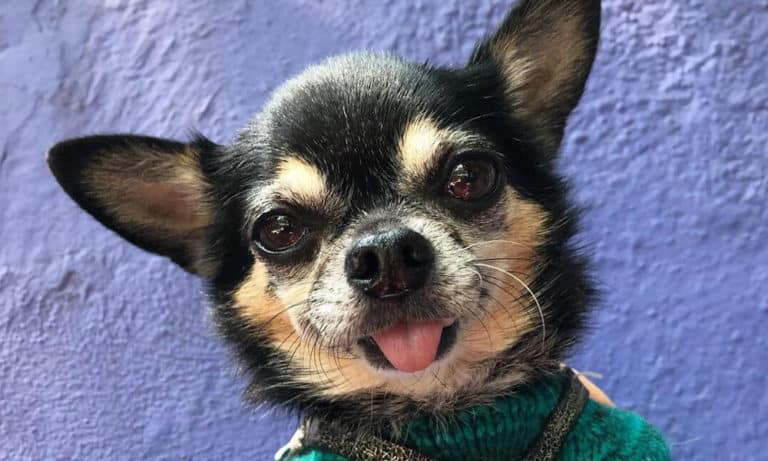Country Policies
Each country has a different policy when it comes to dogs entering. They range from being fairly simple, to pretty complicated. Planning a trip? See what requirements your destination country has for visiting with your pup.
Please note, if you’re traveling to/from the United States: Effective July 14, 2021, the CDC is temporarily suspending (stopping) dog imports from countries classified as high-risk for rabies. The suspension includes U.S.-origin pet dogs returning to the U.S. from any high-risk rabies country.
Those countries include:
Africa
- Algeria, Angola
- Benin, Botswana, Burkina Faso, Burundi
- Cameroon, Central African Republic, Chad, Comoros, Côte D’Ivoire (Ivory Coast)
- Democratic Republic of the Congo, Djibouti
- Egypt (Temporary importation suspension of dogs from Egypt until further notice)
- Equatorial Guinea, Eritrea, Eswatini (Swaziland), Ethiopia
- Gabon, Gambia, Ghana, Guinea, Guinea-Bissau
- Kenya
- Lesotho, Liberia, Libya
- Madagascar, Malawi, Mali, Mauritania, Morocco, Mozambique
- Namibia, Niger, Nigeria
- Republic of the Congo, Rwanda
- Sao Tome and Principe, Senegal, Sierra Leone, Somalia, South Africa, South Sudan, Sudan
- Tanzania (including Zanzibar), Togo, Tunisia
- Uganda
- Western Sahara
- Zambia, Zimbabwe
Americas & Caribbean
- Belize, Bolivia, Brazil
- Colombia, Cuba
- Dominican Republic
- Ecuador, El Salvador
- Guatemala, Guyana
- Haiti, Honduras
- Nicaragua
- Peru
- Suriname
- Venezuela
Asia and the Middle East, Eastern Europe
- Afghanistan, Armenia, Azerbaijan
- Bangladesh, Belarus, Bhutan, Brunei
- Cambodia, China (excluding Hong Kong, Macau, and Taiwan)
- Georgia
- India, Indonesia, Iran, Iraq
- Jordan
- Kazakhstan, Kuwait, Kyrgyzstan
- Laos, Lebanon
- Malaysia, Moldova, Mongolia, Myanmar (Burma)
- Nepal, North Korea
- Oman
- Pakistan, Philippines
- Qatar
- Russia
- Saudi Arabia, Sri Lanka, Syria
- Tajikistan, Thailand, Timor-Leste (East Timor), Turkey, Turkmenistan
- Ukraine, United Arab Emirates, Uzbekistan
- Vietnam
- Yemen
Due to this, I will list country requirements from those not classified as high-risk for rabies.
Albania Pet Policy

For movement between EU countries or from non-EU countries vaccination against rabies documented in the pet passport or the animal health certificate is the sole requirement for dogs, cats and ferrets to travel across EU borders, with certain exceptions.
Your animal will require an electronic microchip or a readable tattoo that has been applied before 3 July 2011 with the same code as the one documented in the passport.
Anguilla Pet Policy

- Animals (Dogs and Cats) must be 13 weeks or older
- An original Health Certificate issued by an accredited veterinarian in the country of origin (USDA accredited for United States)
- The health certificate must show that the animal(s) are fully vaccinated (incl. Rabies, DHLPP/
- FVRCP etc.) and free from internal and external parasites (Negative fecal test and preventative medication)
- Animals MUST be vaccinated against rabies at least one (1) month BEFORE travel. The three year rabies vaccine is accepted.
- The health certificate must state that animal(s) is/are be free of any infectious or contagious diseases and have not been in contact with any animal suffering from the same for the past sixty (60) days.
- Permit is only valid for one (1) month.
- If animals (Dogs) are permanently staying on the island, owners must license their animals at Inland Revenue and present proof of licensure to the Dept. of Natural Resources within five (5) business days.
- EC $35.00 or US $13.02. Payment by card US $15.00
Antigua & Barbuda Pet Policy

An import permit must be obtained from the Chief Veterinary Officer before the information of all animals. In order to obtain this permit, the intended animal must first be micro-chipped and its blood tested for Rabies Titer at an approved laboratory. The result of such tests must then be forwarded to:
Chief Veterinary Officer
P.O. Box 1282
St.John’s Antigua
Tel/Fax: (268)460-1759
The Kansas State University Rabies Laboratory
The Kansas State University Rabies Laboratory is an approved Lab that uses the Fluorescent Antibody Virus Neutralization Test (FAVN). The FAVN consists of a of a three-fold serum dilution series and is used to detect rabies virus neutralizing antibody after vaccination and is required by many rabies free countries in order for dogs and cats to qualify for a reduced QUARANTINE PERIOD.
Specimen Requirement
1 ml serum without preservatives; spun and separated from the clot.
Microchip identification must be implanted prior to sample draw.
NOTE: A waiting period of at least 14-21 days between rabies vaccination and sample draw is advised.
Processing Time
The test is initiated each week on Monday and Wednesday mornings. Results can be expected in the mail 10 – 14 days after the set-up date. Fax and/or phone results will only be granted upon request. KSU receives packages 24 hours per day, 7 days per week. However, the lab is only open Monday through Friday and samples will not be dated until they reach our lab.
Shipping Information
Serum should be packed in a leak-proof container with absorbent material. This should then be placed inside a container with dry ice or ice packs. An overnight or next day carrier is recommended since regular mail can take up to two weeks.
Cost
$35.00 by check, money order or credit card made payable to FAVN. Payment must be included at time of submission. A delay in testing may occur if payment is not included. For credit card payment, please contact the lab.
Send Samples to
Attn: Dr. Deborah J. Briggs, FAVN
Kansas State University Rabies Laboratory
1800 Denison Ave. Mosier Hall
Manhattan, Kansas 66506-5606
Tel: (785) 532-4483 Fax: 785) 532-4474 Email: [email protected]
Additional Advice
- Always seek the advice of your veterinarian before flying any pet.
- Please check with your airlines for list of requirements i.e. proof of vaccinations, a current health certificate, etc.
- Airlines have specific requirements designed to ensure your pet’s safety. Make sure that the kennel in which the animal is confined is approved for air travel.
- ALWAYS leave a collar on your pet that has a tag with your name, your address and your pets name on it.
Argentina Pet Policy

The Consulate does not grant permits to take domestic animals to Argentina. The owner should make arrangements to coordinate the boarding directly with the airline. In order to avoid quarantine on arrival, an animal health certificate and a rabies vaccine record are required. Both certificates must be provided by a veterinarian registered and certified by the US Department of Agriculture, Animal, and Plant Health Inspection Division, Veterinary Services (VS).
The animal health certificate should be in or translated to Spanish, have applied the Apostille of The Hague, and it must include:
- Information about the owner: name, address
- Information about the animal: breed, sex, date of birth, coat, size, and particular marks
- Country of origin, destination, and transit (if applicable)
- The certificate must guarantee that the animal has been examined within the 10 days prior to departure, and that it does not show signs of any disease.
The rabies vaccine certificate is required for cats and dogs older than 3 months. In animals being vaccinated for the first time, the vaccine should be applied at least 30 days prior to arrival date. The certificate must have been issued less than one year prior to the arrival date.
The Consulate DOES NOT legalize these documents. They must be presented to the airline.
Quarantine
For animals fulfilling the previous requirements, quarantine will not be necessary. In case of suspicion of contagious or high risk diseases, Senasa staff will take the necessary measures to ensure their isolation and/or corresponding quarantine.
For information on other domestic animals species, please contact SENASA at (54-11) 4345-4112/4110.
Aruba Pet Policy

Microchip
AVID brand or ISO compatible microchips are required
– If your pet has a microchip type other than an AVID or ISO compatible chip, your pet must travel with a microchip scanner capable of reading your pet’s microchip
Rabies Vaccination
- Pets that will be under 3 months of age at the time they travel to Aruba do not need to be vaccinated for rabies.
- A statement reading, “too young for rabies vaccination” should be included on the health certificate.
- Pets over 3 month of age must be vaccinated against rabies and travel with a rabies vaccination certificate that contains the following information:
- Name, lot number, and expiration date of the vaccine
- Date of current vaccination (must be given at least 1 month prior to traveling to Aruba)
- Name, address, phone number and signature of the veterinarian that gave the rabies vaccination
Residency Requirements
- The dog/cat must have been in the United States or Aruba continuously for the 6 months preceding the date of export OR
- If the dog/cat is younger than 6 months, it must have been born and lived continuously in the United States at the date of export OR
- Written exemption from the above by the Head of the Veterinary Service of Aruba
- The Veterinary Service of Aruba may be reached by telephone at: +297 5850400; by FAX at: +297 5851828 or email [email protected].
International Health Certificate
- Must be issued within 2 weeks (14 days) of arrival into Aruba by a USDA Accredited Veterinarian
- After issuance, the Health certificate will need to be endorsed (counter-signed) by an APHIS VS Service Center.
Important Notes
- The health certificate and related documentation must be approved by the Director of the Veterinary Service of Aruba before the animals are shipped to Aruba.
- The Veterinary Service of Aruba may be reached by telephone at: +297 5850400; by FAX at: +297 5851828 or email [email protected].
Australia Pet Policy

Australia provides detailed step-by-step instructions on how to bring your pet into the country. It is a long process, so the sooner you begin to prepare, the better.
They start by separating origin countries into groups, and from there list requirements and time frames.
Check out their pre export treatment date calculator to help determine your eligibility and to create a timeline of when to complete each step by.
Austria Pet Policy

A) The entry of dogs, cats and ferrets is possible from all third countries, if the following conditions are complied with:
- Each animal has to be identified.
- Each animal has to be vaccinated against rabies and the vaccination must be valid.
- for each animal an animal health certificate containing
- a confirmation of a serological test for rabies antibodies
- and a declaration in accordance with article 25 (3) of Regulation (EU) No 576/2013 have to be presented. This declaration has to be issued in German and English and filled in in BLOCK LETTERS. A model declaration has been provided for in Annex IV Part 3 of Regulation (EU) No 577/2013. If these conditions are complied with, a dog, cat or ferret is at least 7 months old.
Bahamas Pet Policy

An import permit is required from the Ministry of Agriculture and Marine Resources (Nassau) for all animals brought into the country. The permit is valid for one year from the date of issue.
The Department of Agriculture is responsible for the import of animals and animal products into The Bahamas under the Animal Contagious Diseases Act and the Wildlife Conservation and Trade Act. These Acts state that a permit is required for the import of any animal and most animal products into The Bahamas.
The Bahamas is a Party to several international environmental and trade agreements including the Convention on International Trade in Endangered Species of Wild Plants and Animals (CITES), the Convention on Biological Diversity (CBD) and must meet our obligations to them.
The Veterinary Services of the Department is currently reviewing and revising all of our import requirements, fees and conditions at this time as a part of our continuing effort to keep abreast of changes in technology and recommendations by the International Standard Setting Bodies (ISSBs) such as the World Animal Health organization (OIE) and also as The Bahamas is seeking to join the WTO.
All inquiries with regards to sanitary requirements or applications should be directed to:
Director of Agriculture
Department of Agriculture
Darville’s Business Complex
Gladstone and Munnings Roads
PO Box N 3028
Nassau, New Providence
The Bahamas
Tel: (242) 397-7450/325-7438
Fax: (242) 325-3960
E-mail: [email protected]
An import permit is required for the import of dogs and cats and must accompany the animal at the time of import .All conditions listed on the permit must be satisfied or the animal may be refused entry or confiscated and disposed of as a disease risk. Currently, the application processing fee for a dog or cat is for US $10.00 plus 12% VAT bringing the total cost to $11.20. A veterinary health certificate is required at the time of import which should include certification that the animal is healthy, has an active immunity against rabies and satisfies all other health requirements.
Barbados Pet Policy

Countries have been divided into two (2) categories: Category 1 countries and territories (including the USA) are those that are rabies free or present a low risk with respect to rabies; Category 2 countries are all other countries and territories. Animals travelling by sea (e.g. on yachts, cruise ships and cargo vessels) or that have lived in a Category 1 country for less than 3 months also fall into this group.
All dogs and cats entering Barbados must be permanently identified with a microchip (the specific type is given in the new conditions) and must be vaccinated against rabies after the microchip has been implanted.
Import Permit: You will need official permission to bring your pet to Barbados so the first thing you need to do is apply for an import permit (link below). Permits are valid for six (6) months from the date of issue.A permit fee of BDS $25.00 is payable to the Veterinary Services Department at the offices in The Pine, St. Michael, Barbados. Payment may be made in cash or by one of the following monetary instruments made payable to The Permanent Secretary, Ministry of Agriculture:If the money order is coming from a country other than Barbados, it must be in United States currency for US $15.00.Once the application has been approved, you will be issued the import permit, as well as the conditions your pet has to meet to qualify for entry into Barbados. An Official Export Health Certificate (see conditions) has to be completed. You will need your veterinarian to assist you.
Travelling to and Arrival in Barbados: Regardless of country of origin, if your pet is travelling by a commercial airline, it must arrive in Barbados as manifested cargo.
Contact Veterinary Services to give at least 3 working days’ notice of the expected date and time of arrival of your pet. The department may be reached by
- Telephone (246) 427-5492 or (246) 427-5073
- Fax: (246) 429-2143 or
- E-mail [email protected].
Please provide the following information:
- Name, address (in Barbados) and contact information of the owner/agent;
- Name and contact information of the Customs broker;
- Date and time of arrival;
- Airline and Flight number or vessel name.
- Customs duties are levied on all animals imported into Barbados. In order to facilitate the process, you will need to employ the services of a customs broker. (If your pet is only visiting and will be returning to its country of origin, customs duties may be refundable at the time of departure. Contact your customs broker for further information.)
- Upon arrival, your pet will be taken by the aircraft handlers directly to the Animal Reception Centre where it will be examined by a Government Veterinary Officer.
Once approval has been given for the pet to enter the country, a Customs Officer will apply the relevant duties.
In addition to Custom duties, there are veterinary fees applicable on the importation of dogs and cats:
- Landing certificate fee (per animal) – $60.00
- Overtime fees payable to the inspector – $150.00 – $300.00 – depending on the day and time of arrival/inspection (i.e. if your pet landed in Barbados outside of standard Government working hours, on a weekend or Bank Holiday).
When all documents have been examined and approved and all the necessary fees have been paid, you may take your pet home. Welcome to Barbados!
Belgium Pet Policy

NEEDED for cats/dogs or ferrets:
1) Microchip + rabies shots:
The microchip (15 digits).
If you are traveling to a EU country and your pet has the 9 digit microchip, your pet will either need another 15 digit microchip OR you will need to bring your own scanner. (the 15 digit ISO microchip is fast becoming the world standard).In Europe, the standard pet microchip meets ISO standard 11784/17785 and is a 15 digit microchip operating at 134.2 kHz )
“Pet dogs, cats, and ferrets must be identified with a microchip compatible with ISO standard 11784 or 11785 or the appropriate microchip reader must be provided along with the pet. Microchip implantation must occur prior to rabies vaccination. Any rabies vaccination that occurs prior to microchip implantation is not considered valid regardless of whether the animal was up-to-date on its previous rabies vaccines. In this case, the animal must be revaccinated. 21 days must have elapsed after the first (primary) vaccination after implantation of the microchip before the animal is eligible to enter the European Union. A rabies vaccination is considered primary if either: (1) an animal was up-to-date on its rabies vaccination but vaccination occurred prior to microchip implantation, (2) vaccination was not carried out within the period of validity of a previous vaccination, or (3) the animal was vaccinated for the first time.“
2) The rabies vaccinations:
After the implant of the microchip and at least 21 days before traveling. (So at least 21 days – but the “maximum” vaccination of a pet cannot exceed 3 years – otherwise the pet will need to get vaccinated again.) Also, if the shots were given before the implantation of the new microchip, your pet will need a rabies booster shot and again has to wait at least 21 days before traveling.
(A puppy has to be at least 3 months old before getting the vaccination and afterwards wait at least 21 days before travel)
3) Veterinary certificate (within 10 days of travel**):
If the veterinary is USDA accredited, his signature will suffice.
5 or less dogs, cats, and ferrets traveling **
- Owner traveling on the same plane as the pet OR owner travels within 5 days before or after the pet
- Certificate must be issued within 10 days of entering the EU
- Designated person* traveling on the same plane as the pet OR designated person* travels within 5 days before or after the pet
- Certificate must be issued within 10 days of entering the EU
- Neither the owner nor a designated person* is traveling within 5 days of the pet
- Certificate must be issued within 48 hours of departing the U.S.
- *Designated person: a family member, friend, or other person authorized by the owner to travel with pet
https://www.aphis.usda.gov/pet-travel/eu-noncommercial-hc-first-page-guidance.pdf – Health Certificate (Movement of no more than 5 non-commercial pet animals)
4) NOTE: post-rabies/titillation test:
This is only needed if your pet is coming from a third world country… not if your pet is leaving from the US. (For example: If you came back from Africa… your pet would need it)
Bermuda Pet Policy

Review these conditions of entry to ensure that your animal qualifies to enter Bermuda. Also review the lists of dog breeds below to learn whether your dog is included. Properties housing prohibited or restricted breed dogs must be able to securely house the animal by the presence of inescapable fencing or an enclosure. The fencing or enclosure must comply with rules & processes of the Department of Planning, and the premise inspected by an Animal Warden before an import permit is issued.
The following conditions of entry apply to the importation of all dogs and cats. You must provide true and accurate documentation of the following:
- The animal has been implanted with a microchip read by a standard microchip reader, i.e. ISO, FECAVA, European/International or AVID-USA chip.
- A veterinary health certificate issued within 10 days before your arrival in Bermuda, stating that the animal is not infected with any communicable disease and is free of external parasites. The health certificate must be signed by a licensed veterinarian and contain the following information:
- Name, date of birth, breed, description and microchip identification of pet;
- Owner at present;
- Owner in Bermuda and address
- A veterinary statement giving the name of the acaricidal preparation applied during the examination, which is known to have residual activity against ticks, e.g. Bravecto®, Simparica®, NexGard®, FrontLine Top Spot®, Ovitrol®, Sectrol®, K9 Advantix®, Vectra 3D®, Proticall®, Kiltix®, Defend Ex-Spot®, Promeris® for Dogs. – NOTE: Advantage®, Sentinel®, Revolution®, Selamectin, Capstar®, Bio-Spot®, Promeris® for Cats, , Comfortis®, shampoos and collars do not qualify.
- A veterinary statement that, as best as can be ascertained by your knowledge and through questioning, the animal has not been exposed to rabies nor been present in an officially quarantined rabies area within the last 6 months.
- This requirement is not applicable to dogs or cats originating and arriving directly from the United Kingdom, Australia, New Zealand or Jamaica.
Rabies vaccination history, showing the two most recent rabies vaccinations, and that both rabies vaccinations were given by a licensed veterinarian, and were in accord with all of these requirements:
- The animal received the first of the two rabies vaccinations at / after the age of three months; and
- The animal received the second rabies vaccination 6-12 months following the first rabies vaccination; and
- There have been no significant lapses in vaccinations; and
- The most recent vaccination was given at least 30 days, and not more than 12 months prior to arrival.
Dogs and cats under age 10 months, and dogs and cats of any age that have received only a single rabies vaccination, do not qualify for entry into Bermuda.
Veterinarians may only attest to vaccinations given by him/herself, given under his/her direct supervision, and prior vaccinations that are accompanied with original vaccination certificates. Veterinarians cannot attest to vaccines given by non-veterinarians, including owners or breeders.
- This requirement is not applicable to dogs or cats originating and arriving directly from the Continental USA or Canada. The animal has not been kept within 30 miles of Foot and Mouth disease during the last 30 days.
- When requested, you will be required to give information regarding the purpose of imported animal, and the location of facility where the animal(s) will be housed. You need not provide this information when you apply.
- Resident dogs must be licensed at the main office of the Department of Environment & Natural Resources, (Botanical Gardens, Paget) immediately after arrival.
Bulgaria Pet Policy

When a pet animal is moved and transported, its owner or the person accompanying it shall, if so requested by an official veterinarian, present information on the owner’s name and address. Pet animals moving from the Republic of Bulgaria into the Member States of the European Union shall be accompanied by a passport issued by an official veterinarian, wherein all immunisations or re-immunisations performed shall be recorded.
Where pet animals are moved and transported from third countries into the Republic of Bulgaria, they shall be accompanied by a veterinary certificate issued by an official veterinarian, as well as a passport.
Full text of the Ordinance on the Health Requirements to Pet Animals when Moved and Transported for Non-Commercial Purposes.
Information on the veterinary requirements applied by the National Veterinary Service (NVS) to the moving and transporting of pet animals from third countries into the Republic of Bulgaria, as well as information on the conditions whereunder the movement of animals shall be allowed, is published on the website of the Ministry of Agriculture and Food.
Canada Pet Policy

Valid Rabies Vaccination Certificate
The European Union pet passport is an acceptable alternative to the rabies vaccination certificate as long as all the required elements outlined below are included.
The rabies vaccination certificate (or European Union pet passport) must:
- be written in English or French
- be issued and signed by a licensed veterinarian
- identify the animal (age, breed, sex, colour/markings, weight, and microchip/tattoo number if applicable)
- state that the animal is vaccinated against rabies
- indicate the date of vaccination
- indicate the trade name and the serial number of the licensed vaccine
- specify the duration of immunity (otherwise, it will be considered valid for 1 year from the date of vaccination)
- have the name and signature of the licensed veterinarian that issued the certificate and the date it was signed
All information on the certificate must be legible.
Microchip or Tattoo
Canada does not require a microchip or tattoo identification for domestic dogs imported as personal pets or domestic cats. However, dogs under 8 months of age imported under the commercial category (dogs for retail sale, breeding purposes, show or exhibition, scientific research, dogs in ‘special training status’, and dogs destined for adoption and/or animal welfare organization) must be identified by an electronic microchip.
Inspection fees, taxes, and duties
All personal pet dogs, commercial dogs over 8 months of age, and domestic (pet) cats that are imported into Canada will have a documentary inspection by the Canada Border Services Agency (CBSA) to ensure the animal’s rabies vaccination is current and the animal description matches. The CBSA will also visually inspect the animal to ensure that there are no visible signs of illness or injury. The CBSA may contact the CFIA when veterinary guidance or expertise is needed. In certain cases the animal may be referred to CFIA for further inspection. Additional fees for the cost of CFIA inspection will apply.
If a pet dog or cat does not meet Canada’s import requirement for rabies vaccination (even if the animal is being imported from the United States), the owner will be ordered, at their own expense, to vaccinate their animal against rabies within two weeks of its arrival. The owner must then present the rabies vaccination certificate to their nearest CFIA Animal Health Office (opens in new window).
For fee amounts refer to the CFIA Fees Notice. All fees must be paid at the time of inspection. Any applicable taxes or duties are calculated by the CBSA.
Chilean Pet Policy

What do I need to enter Chile with my dog or cat?
Those responsible for dogs and cats, who wish to enter Chile, must present one of the following authorized official health documents, as the case may be:
Foreign Official Zoosanitary Certificate, valid for 10 days from its issuance to the date of entry to Chile (extended in the language of origin and also in Spanish).
Passport for animals of the European Union, its validity is defined by the particular veterinary clinical examination.
It should be noted that the documents issued abroad, both the certificate and the passport, are valid only if they register the necessary requirements and must be presented together with the pet (dog or cat), at the border control of entry to Chile.
The requirements that these documents must describe are those contemplated in Resolution No. 6,056 / 2009:
a) Protection against rabies: it can be in one of two ways:
rabies vaccine administered between 30 days and 12 months prior to entering Chile
measurement of the assessment of neutralizing antibodies against the rabies virus, with a minimum result of 0.5 I.U./ml, carried out within the 12 months prior to entering the country.
b) Internal deworming: indicating active principle and application date, no more than 30 days prior to entering Chile.
c) External deworming: indicating active ingredient and application date, no more than 30 days prior to entering Chile.
d) Clinical examination by a private veterinarian: indicating that the animal is free of infectious, contagious, transmissible and parasitic diseases, which must have been carried out a maximum of 10 days prior to entering Chile.
This information must be contained and duly accredited in the Official Zoosanitary Certificate or Passport for Animals of the European Union.
Companion animals other than dogs and cats must meet other requirements that must be processed in advance, in an average time of 3 months prior to entering Chile.
See requirements for other species
For more information, contact the Office of Information, Claims and Suggestions (OIRS), at [email protected] or at (2) 23451100
Admission by air
Check in advance with the airline the way of transferring the pet, such as:
Accompanied baggage
Load
In the latter case, you must complete a procedure that involves paying the fees associated with warehousing, SAG inspection and customs duty.
Costa Rica Pet Policy

TO BRING YOUR DOG OR CAT TO COSTA RICA FROM THE UNITED STATES
The dog or cat must be accompanied by a health certificate issued by an authorized veterinarian and
endorsed by the U.S. Department of Agriculture (USDA), the Plant Inspection Service, and
Animals (APHIS) and Veterinary Services (VS). This approval must be made by the office of
APHIS Veterinary Services of the State where you live. Contact information can be
find in the Plant and Animal Inspection Service (APHIS), then click on “Travel with my pet” in
the right side.
Requirements of the Veterinary Certificate:
2.1 It must be issued by the Official Veterinary Services or by the Sanitary Authority
Competent of the country of origin. It is recommended to use an International Certificate (APHIS FORMA 7001) for small animals.
2.2 The certificates must be numbered consecutively; each sheet must be signed and
sealed.
2.3 The certificate must declare the existence of annexes and their number, duly signed
and stamped with the letterhead of the Competent Authority.
2.4 The International Veterinary Certificate must be in Spanish and otherwise, it must
be accompanied by an original official translation into Spanish certified by the Competent Authority.
2.5 The health certificate must be duplicated.
2.6 The health certificate does not have to be signed by a Notary Public, nor sealed by the Office
Consular of Costa Rica.
2.7 Animals exported in large commercial quantities must be accompanied by a Permit
import. Personal pets (dogs or cats) do not need an Import Permit.
2.8 The official certificate of vaccination against rabies must accompany the health documents
and it is valid for the vaccination period (1 to 3 years).
2.9 The supporting documentation of the dog / cat will be reviewed upon arrival in Costa Rica.
Information to be included in the International Veterinary Certificate:
3.1 Dog / cat information: breed, sex, color, date of birth and identification number
of the animal (if it owns it).
3.2 Name and address of the exporter.
3.3 Name and address of the consignee.
3.4 Means of transport.
3.5 Name and signature of the Official Veterinarian, stamp of the Competent Authority and date of
issue.
Vaccine requirements:
4.1 The domestic canine / feline was subjected to clinical examination by a veterinarian.
authorized. This examination must be done two weeks prior to shipment.
4.2 The animal was treated within fifteen (15) days prior to export with medications
for external and internal parasites, ensuring that they are free of ticks and other parasites
external and internal. The date of application, trademark, lot number, and the date of application must be indicated.
main asset of the treatments.
4.3 The domestic canines were vaccinated against distemper, hepatitis, parvovirus and
leptospirosis.
4.4 Domestic cats were vaccinated against rhinotracheitis, calicivirus, and panleukopenia.
4.5 Dogs and cats older than three months must have been vaccinated against rabies. This vaccine
It must be valid on the day you enter the country. The international veterinary certificate must be noted
the date of vaccination against rabies, trademark, manufacturer laboratory, batch number and date of
expiration of the vaccine.
4.6 Puppies (dogs and / or cats) less than three months old should not be vaccinated against
Rage; however, the vaccination plan must be certified according to age and species.
There are two (2) ways to introduce domestic animals (dogs and cats) to Costa Rica:
(1)Pets that enter the cabin with the owner or as “baggage” on the same flight and
enter the baggage claim area: these animals require the above documentation.
Depending on the length of stay in Costa Rica, pets that enter Costa Rica from
The US may or may not need additional documentation to leave Costa Rica and return to the US:
to. If the animal enters Costa Rica and stays for a time greater than the validity of the
U.S. Health Certificate (30 days by APHIS Form 7001) or rabies certificate,
then that pet will need a valid Costa Rican Health Certificate or a certificate of
vaccination to go out.
b. If the pet leaves during the period of validity of the Health Certificate of the
USA and the rabies certificate, then that is all that is required to leave Costa Rica.
(2)If the dogs and cats that enter Costa Rica for commercial reasons, or are sent as
load, or the owner has two or more large breed dogs, the animals go directly to a
customs warehouse and they will need all the documentation in advance.
Croatia Pet Policy

General import conditions for dogs, cats and tame martens (also known as domestic ferrets, white ferrets, African ferrets, weasels, skunks, tame ferrets, domestic weasels or tamed weasels – mustela putorius) from EU member states and low-risk countries outside the EU:
- The animal must be fitted with an electronic identification system (microchip). If the animal is fitted with a microchip that is not in line with ISO Standard 11784 or 11785, the owner must provide an appropriate microchip scanner. The name and address of the animal’s owner must be determinable at all times. The animal’s passport or certificate, which is transported with the animal, must contain the microchip number which has been issued by a veterinary surgeon.
- The animal must have a passport or certificate issued by a veterinary surgeon authorised by the relevant body.
- The animal must be vaccinated against rabies
Animals from EU countries or countries outside the EU that are considered low-risk, are under three months of age and have not been vaccinated, may be imported into the territory of the Republic of Croatia if the owner or accompanier holds a valid passport or certificate and if the animals have lived in the same place since birth and have not come into contact with wild animals which may have been exposed to infections, or are travelling with their mother on whom they are still dependent.
Dogs, cats and members of the marten family from high-risk countries must fulfil the following conditions:
- They must be fitted with an electronic identification system (microchip)
- They must have a certificate issued by an official veterinary surgeon or, upon re-entry, a passport (dogs from Croatia)
- They must be vaccinated against rabies
- They must have undergone a test on the neutralisation of antibodies with the titration of antibodies equalling at least 0.5 IJ/ml in a sample taken by a certified veterinary surgeon in a certified laboratory, 30 days after vaccination at the earliest and three months prior to transfer. A list of authorised facilities may be found on the following website: http://ec.europa.eu/food/animal/liveanimals/pets/approval_en.htm.
- The stipulated period of three months is not applicable in the case of the re-entry of pets from the Republic of Croatia whose passport confirms that a positive result on the titration of antibodies was recorded before the animal left the Republic of Croatia.
- Animals imported commercially, and those shipped as a parcel, must be examined by a veterinary surgeon prior to shipment.
- For additional information, please contact the Ministry of Agriculture, Fisheries and Rural Development – Administration for Veterinary Medicine. Tel.: +385 1 6443 540. Website: www.mps.hr
Cyprus Pet Policy

| A. General requirements 1. Identification Every animal must be individually identified. An animal is considered identified when it bears either ü a clearly readable tattoo (the tattoo, as a means of identification, is accepted only if it has been applied before 3 July 2011) or ü an electronic identification system (transponder – microchip). The transponder (microchip) must comply with ISO standard 11784 and apply HDX or FDX-B technology and must also be capable of being read by a reading device compatible with ISO standard 11785. In the case where the transponder does not comply with the aforementioned standards, the owner/person responsible for the animal must provide the means necessary for reading the transponder at the time of any inspection. In any case, the date of vaccination against rabies should not precede the date of application of the transponder or tattoo or the date of reading of the transponder or the tattoo indicated in the appropriate section of the identification document. In Cyprus, only authorized veterinarians have the right to carry out the implantation of the transponder. 2. Vaccination against rabies The entry of pet animals into the territory of the Republic of Cyprus unvaccinated against rabies is prohibited regardless of the country of origin. In order to be vaccinated, the animal must be at least 12 weeks old. The vaccination, or revaccination if applicable, must be in accordance with the recommendations of the vaccine manufacturer and carried out either with an inactivated vaccine of at least one antigenic unit per dose according to the World Health Organization standards, or with a recombinant vaccine expressing the immunising glycoprotein of the rabies virus in a live virus vector. The use of live modified vaccines against rabies is not allowed. Τhe period of validity of the vaccination starts from the establishment of protective immunity, which is at least 21 days from the completion of the vaccination protocol required by the manufacturer for the primary vaccination and continues until the end of the period of protective immunity. The day of vaccination counts as day 0 not day 1, so if the completion of the vaccination is conducted on the 1st of the month the earliest it can travel is the 22nd. Revaccinations (booster vaccinations) are valid from the date of administration, provided they are administered within the period of validity indicated by the manufacturer of the vaccine used in the previous vaccination. The vaccination will be considered as a primary vaccination in the absence of veterinary certification attesting the previous vaccination. The relevant documents ratifying the fulfilment of these requirements should be presented upon request during the inspection at the point of entry. The registered vaccines for rabies in the Republic of Cyprus are the following. 3. Age Taking into account the abovementioned requirements, any pet animal entering the territory of the Republic of Cyprus must be at least 105 days old. The entry of pet animals aged less than 105 days old is prohibited regardless of the country of origin. 4. Breed The entry of dogs of the following breeds is prohibited regardless of the country of origin. · Pit Bull Terrier or American Pit Bull · Japanese Tosa or Tosa Inu · Dogo Argentino or Argentinian Mastiff · Fila Brasileiro or Brazilian Mastiff 5. Transport In the case of transport by air, the animals should be placed in containers which fulfil the requirements of the International Air Transport Association (IATA) specifications. For more information you may visit IATA website. In the case of transport by sea, the animals must be transported under conditions fulfilling the health and welfare provisions as foreseen by the legislation in force. 6. Maximum number of animals allowed The maximum number of pet animals which may accompany the owner or an authorised person during a single non-commercial movement shall not exceed five. By way of derogation from the above, the maximum number of pet animals may exceed five if the following conditions are fulfilled: (a) the non-commercial movement of pet animals is for the purpose of participating in competitions, exhibitions or sporting events or in training for such events; (b) the owner or the authorised person submits written evidence that the pet animals are registered either to attend an event referred to in point (a), or with an association organising such events; (c) the pet animals are more than six months old. Where the maximum number of pet animals is exceeded and the conditions of the derogation are not fulfilled, those pet animals shall comply with the animal health requirements laid down in Directive 92/65/EEC. B. Special requirements 1. Entry from EU Member States Accompanying documents 1. Passport drawn up in accordance with the model set out in the Regulation (EU) No 577/2013 or in the Decision 2003/803/EC (provided that is issued before 29 December 2014), certifying a valid anti-rabies vaccination. If more than five pet animals per citizen will be moved, within 48 hours prior to the time of dispatch of the animals, an authorised veterinarian must verify that the animals are in good health and fit to be transported for the intended journey and must document the clinical examination in Section X of each animal passport. 2. Document verifying that the animal has arrived in Cyprus from another EU Member State. 2. Entry from third countries Accompanying documents 1. Health certificate or third country passport from third countries which have notified the European Commission that they have adopted the passport model used in the EU, where a valid vaccination against rabies is certified. Part of the health certificate is a written declaration signed by the owner or the authorised person, confirming that the movement of the pet animal into the Union is a non-commercial one. 2. Passport drawn up in accordance with the model set out in the Regulation (EU) No 577/2013 or in the Decision 2003/803/EC (provided that is issued before 29 December 2014), in the case of re-entry from a third country of a pet animal of EU origin, certifying a valid anti-rabies vaccination. 3. Document verifying that the animal has arrived in Cyprus either directly or transiting through an EU Member State from the third country or territory mentioned in the health certificate. 4. Rabies neutralising antibody titration test is required in case that the country or territory is not listed in annex II of Regulation (EU) No 577/2013. In case of transit through a territory or a third country other than those listed in that annex, the test is not required, provided that the owner or authorised person provides a signed declaration that during such transit the pet animal has had no contact with animals of species susceptible to rabies and remain secured within a means of transport or within the perimeter of an international airport. The rabies antibody titration test must be performed in a laboratory approved by the EU on a blood sample taken by an authorised veterinarian at least 30 days after vaccination and three months before the animal movement. In other words, four months prior to the movement the animal must receive the primary anti-rabies vaccination, followed by blood sampling for rabies antibody titration 30 days after that vaccination. The neutralising antibody titer must be equal or greater to 0,5 IU/ml. The titration does not have to be renewed on a pet animal which has been revaccinated at the intervals recommended by the vaccine manufacturer. |
Czech Republic Pet Policy

I. VETERINARY REQUIREMENT FOR TRAVELLING WITH DOGS, CATS OR FERRETS
As of October 1, 2004, the following is required for traveling with dogs, cats or ferrets to the Czech Republic:
1. Completed Veterinary Certificate signed by a veterinary doctor. The sample Veterinary Certificate provided here is not mandatory. However, any other form or document, provided by your veterinarian, must contain the information listed bellow:
A. Country of Dispatch of the animal
B. Owner/responsible person accompanying the animal
- Name
- Address
- Country
- Telephone number
C. Description of the animal
- Species
- Breed
- Sex
- Date of birth
- Coat (color and type)
D. Identification of the animal
- Microchip number / tattoo number
- Location of microchip / tattoo
- Date of microchipping / tattooing
E. Rabies Vaccination
- Manufacturer and name of vaccine
- Batch number
- Date of the vaccination
- Expiration date of the vaccine
Once signed by the veterinarian or endorsement by the competent authority, the certificate is valid for four months, or until the expiration date of the vaccination, whichever comes first.
The United States and Canada are both included in Annex II EC regulation 998/2003 (odkaz), which means that both countries are considered low risk regions for rabies. Therefore no rabies serological test is required.
As of October 1, 2004, the rabies vaccination does not have to be administered at least 30 days prior to entry into the Czech Republic. The rabies shot will have to be repeated either annually or every two years in accordance with the type of vaccine used.
Dogs, cats and ferrets less then 12 weeks old are permitted to travel to the Czech Republic without prior inoculation against rabies (however the pet does need the chip or tattoo). In addition, the animal must travel with a statement from a veterinary doctor, which declares that the animal resided at the birthplace until travel date and has not been in contact with any animals possibly infected with rabies. Please be aware that other EU member countries might have different rules regarding the import of pets younger then 3 months of age. If you intend on traveling to another European country with your young pet, you will have to contact the Embassy representatives of that particular country to find out if additional requirements apply.
For travel to the Czech Republic with your dog, cat, or ferret, a tick treatment or an echinococcus treatment is not required.
2. Identification – tattoo or microchip. If your pet will be identified through a microchip, please be aware that the microchip must meet the ISO standard ( International Organization for Standardization) Annex A, 2.1, ISO # 11785. For your information, the HomeAgain microchip from AKC Companion Animal Recovery, which is manufactured in compliance with Annex A, 2.1, ISO # 11785 meets the requirements. If microchip does not meet the ISO standards than you have to keep an applicable microchip reading device at the time of crossing borders to the Czech Republic.
Denmark Pet Policy

- The dog must accompany the owner
- There are certain dog breeds that you may not move to Denmark.
- Your dog must have a valid identification.
- The dog must be marked with a microchip or by a clearly readable tattoo applied before July 3, 2011.
- The technical requirements of the microchip must comply with ISO Standard 11784 and apply HDX or FDX-B technology and be capable of being read by a reading device compatible with ISO Standard 11785.
- Your dog must be accompanied by a Veterinary Certificate.
- Your dog must be vaccinated against rabies at least 21 days prior to its movement to Denmark.
- The maximum number of pet animals of the species dog, cat and ferret you move may not exceed five.
- If your dog on its way to Denmark is moved through a non-listed country.
- The dog must enter the EU through a travellers’ point of entry.
Estonia Pet Policy

Microchip
Dogs, cats, and ferrets must be individually identified by an ISO compliant (11784 and 11785) microchip.
ISO compliant microchips are 15 digits long. The pet’s microchip ISO compatibility can be confirmed with the microchip manufacturer.
Rabies Vaccination
If this pet is less than 15 weeks old and has not been vaccinated for rabies more than 21 days before entry into the EU, there are two options:
- Option 1:
- The young pet animal is traveling with its mother on whom it is still dependent (nursing). Written documentation (rabies certificate) may be requested upon arrival in the EU showing that the mother was vaccinated for rabies before the birth of the young pet animal, and that the mother’s rabies vaccination has not expired. (If the mother’s rabies vaccination has expired before travel, she must comply with the requirements for animals older than 15 weeks of age below, and this option for the young animals does not apply.);
- Option 2:
- The owner or designated person* must sign a Declaration which must accompany the health certificate declaring that, from birth until the time of travel to the EU, the young pet animal has had no contact with wild animals susceptible to rabies.
*Designated person: a family member, friend, or other person authorized by the owner to travel with the pet.
For pets at least 15 weeks old and vaccinated for rabies more than 21 days before entry into the EU:
- Rabies vaccination must occur the same day as or AFTER microchip implantation. The rabies vaccination may be administered the same day as microchip implantation, but any rabies vaccination before a microchip is implanted is invalid.
- If the pet had a non-ISO compatible microchip implanted at the same time as or before the pet’s most recent vaccination and it is still readable, the pet will not have to be revaccinated even if it had to be re-microchipped with an ISO compliant microchip to travel to the EU.
- Remember, the number and implantation dates of both microchips must be documented on the EU Health Certificate and at least one of these microchips must have been implanted before the pet’s most recent rabies vaccine.
- Rabies vaccinations valid for 1, 2 or 3 years are acceptable as long as the rabies vaccination is current and has been administered according to the manufacturer’s recommendations.
- The rabies vaccination must not expire before entering the EU.
- A copy of the rabies vaccination certificate should accompany the pet to the EU.
Health Certificate
The EU has two different health certificates for pets. The health certificate used will depend on the number of animals traveling, whether or not the pet is traveling within 5 days before or after the owner or designated person**, and whether the pet will change ownership or is intended for resale in the EU.
- The “non-commercial” health certificate is:
- For 5 or less pets traveling to the EU within 5 days of the owner or designated person**.
OR
For 6 or more privately owned pets that are more than 6 months old and traveling in a group to the EU to participate in competitions, exhibitions, sporting events, or in training for events, within 5 days of the owner or designated person**. - Valid for 30 days after the USDA Accredited Veterinarian completes and signs it. However, the completed health certificate must be endorsed (counter-signed and embossed/stamped) by APHIS within 10 days of arriving in the EU .
- APHIS endorsement is not required if the health certificate is issued by a military veterinarian, but the military veterinarian must issue it within 10 days of arrival in the EU*.
- The final page of the EU Health Certificate contains a Declaration which must be completed and signed by the owner or designated person** before the pet travels to the EU. The Declaration must accompany the pet and health certificate to the EU.
- Once the health certificate is endorsed by APHIS, the owner or designated person** must enter the APHIS-assigned certificate number in the “Animal health certificate number” section of the Declaration. See the instructions for completing the non-commercial health certificate on the Health Certificate page.
- For 5 or less pets traveling to the EU within 5 days of the owner or designated person**.
Have APHIS endorse the Health Certificate
- After the pet’s USDA Accredited Veterinarian has completed and signed the EU/UK Health Certificate, have the pet’s completed health certificate endorsed by your USDA APHIS Veterinary Services Endorsement Office. For “non-commercial” health certificates, this endorsement must occur within 10 days of your pet’s arrival in the EU. For “commercial” health certificates, this endorsement can happen any time after the USDA Accredited Veterinarian signs the certificate.
- Your local USDA APHIS Veterinary Services Endorsement Office will be able to provide specific information about the process and fees associated with endorsement of the EU Health Certificate.
Fiji Pet Policy

Apply for a BAF import permit
One of the first requirements for bringing pets (dogs and cats) into Fiji is to apply for an import permit with BAF. Application forms for the import permit can be accessed from our website www.baf.com.fj or via email: [email protected] or [email protected]. Completed application forms can be emailed back to BAF or faxed on (679) 3305043. There is a fee applicable to obtain an import permit and should be paid when lodging the application. It takes the BAF Animal Permits Team approximately 5 working days to process applications for import permits.
Once the applications are processed, BAF will send the applicant an import permit outlining conditions that the applicant needs to meet to allow BAF to determine whether the dog or cat intended to be imported will pose no risk to other animals or humans in Fiji. Import conditions will differ depending on the country from which the animal is coming from. Import permits also include forms that must be completed and certified by a registered or government veterinarian from the country the animals are exported from.
Documentation
All animals arriving into Fiji must have with them the following documents:
- Original import permit issued by BAF
- Health certificate from the home country
- Copies of veterinary certificates from the animal’s home country completed by a registered veterinarian including all laboratory results
- Vaccination records
- Identification – all animals must also be identifiable by a microchip that can be read by an AVID, TROVAN, DESTRON or other ISO-compatible microchip reader. Identification is important as it helps in reuniting the pet owner and the pet if they get separated.
AFTER ARRIVING IN FIJI
One of the mandatory quarantine requirements that all animals have to go through after they arrive into Fiji is post entry quarantine.
- Post Entry Quarantine (PEQ)– provided that all other conditions of importation have been met and all BAF fees have been paid, all animals brought into Fiji need to undergo a mandatory quarantine period at BAF’s PEQ Station in Koronivia, Nausori. The mandatory quarantine period is to allow BAF to monitor for diseases that may not have shown symptoms during departure or arrival of the animal into Fiji. Booking for accommodation at the PEQ station should be done at least 1 month before the animal is to arrive. This can be done by calling the BAF office on +679-3312512 or emailing [email protected] or [email protected] Animals will be released from PEQ after the minimum quarantine period given that they remain healthy throughout the post entry quarantine period and all fees for post entry quarantine screening are paid.
Finland Pet Policy

Marking – The pet animal (dog, cat or ferret) must be marked by the implantation of a transponder.
Vaccination against rabies – The pet animal (dog, cat or ferret) must be vaccinated against rabies by an authorised veterinarian, as follows:
- the animal was at least 12 weeks old at the date the vaccine was administered
- the date of administration of the vaccine does not precede the date of marking or reading of the transponder
- the period of validity of the vaccination starts not less than 21 days from the completion of the vaccination protocol for the primary vaccination, and any subsequent vaccination was carried out within the period of validity of the preceding vaccination
Rabies antibody test – The pet animal (dog, cat or ferret) must undergo a rabies antibody titration test, as follows:
- the test must be carried out on a sample collected by an authorised veterinarian at least 30 days after the date of vaccination and not less than three months before the date of movement
- the test must measure a level of neutralising antibody to rabies virus in serum equal to or greater than 0,5 IU/ml
- the test must be performed in an approved laboratory
Treatment against Echinococcus multilocularis – The pet animal (dog only) must, prior to entering a Member State listed in the Annex, or Norway, be treated against the parasite Echinococcus multilocularis, as follows:
- the treatment must be administered by a veterinarian within a period of not more than 120 hours and not less than 24 hours before the time of scheduled entry
- the treatment must be certified by the administering veterinarian in the relevant section of the passport.
Health Certificate and Declaration – the pet animal (dog, cat or ferret) must be accompanied by:
- an animal health certificate
- completed and issued by an official veterinarian, or by an authorised veterinarian and subsequently endorsed by the competent authority
- documenting the alpha-numeric code displayed by the transponder or the tattoo, the details of vaccination against rabies, the details of the blood sampling, and where applicable, the details of the treatment against Echinococcus multilocularis
- valid for 10 days from the date of issue by the official veterinarian until the date of the documentary and identity checks at the travellers’ points of entry. In the case of a transport by sea, that period of 10 days is extended by an additional period corresponding to the duration of the journey by sea. For the purpose of further movements into other Member States the certificate is valid from the date of the documentary and identity checks for a total of four months or until the date of expiry of the anti-rabies vaccination or until the conditions relating to animals less than 16 weeks old cease to apply, whichever date is earlier.
- a written declaration completed by the owner or an authorised person regarding the non-commercial nature of the movement and attesting, where appropriate, the carriage of the animal under the responsibility of an authorised person within up to five days of the movement of the owner.
Travellers’ point of entry – the pet animal (dog, cat or ferret) must pass through a travellers’ point of entry. The owner must, at the time of entry, contact the competent authority present at the point of entry for the purposes of the documentary and identity checks.
France Pet Policy

In order to bring their dogs, cats and ferrets from the United States or Canada into France, travelers
must abide by the following conditions. The rules for the two countries are identical, except for the
agency that must certify the health certificates.
- The animal must be at least 12 weeks old.
- Every animal must be identified by a microchip (standard ISO 11784 or annex A ISO standard11785) or a tattoo. In case of identification with a tattoo, the tattoo must have been applied before July 2011 and remain clearly readable.
- If the microchip standard is different from standard ISO 11784 or annex A ISO standard 11785, you must bring your own scanner in order to read the microchip.
- Every animal must have a valid rabies vaccination. If it is the first rabies vaccination for the pet, you must wait 21 days between the last shot of the vaccination protocol and departure.
- A revaccination (booster) must be considered a primary vaccination if it was not carried out within the period of validity of a previous vaccination.
- Any rabies vaccination prior to micro chipping is considered non-valid.
- If your dog, cat or ferret has been vaccinated before being fitted with a microchip, the animal will have to be vaccinated again after the microchip is inserted. You must wait at least 21 days between the completion of the vaccination protocol (the same as for a primary vaccination) and the departure date, even if the animal was vaccinated before the micro chipping.
- A blood test for rabies antibody titration is not required for animals coming from Canada and the United States (including Puerto Rico, the US Virgin Islands, Guam, American Samoa, and the Northern Mariana Islands).
Germany Pet Policy

- Every animal needs to be identified by a clearly readable tattoo or a microchip (this has been mandatory for newly identified animals since July 3, 2011).
- Proof of valid immunization against rabies must be furnished in the animal health certificate. The period of validity of the immunization is based on the information provided by the manufacturer. A primary vaccination must be administered at least 21 days prior to crossing the border. The pet has to be microchipped before the rabies vaccination.
- Entry is conditional on the animal being accompanied by a person. The accompanying person must provide a written declaration stating that the animal is not being moved for purposes of sale or a change of ownership.
- The aforementioned conditions governing entry must be documented in an animal health certificate issued by an officially authorized veterinarian. In addition, the traveler must carry supporting documents such as a vaccination certificate.
Greece Pet Policy

1. Electronical Identification System (microchip)
a) From the 1st of June 2004 and onwards, according to the Joint Ministerial Decision No.280241/18.11.2003(B’ 1777) dog owners in Greece are required to have their pets marked by means of the electronic identification system (microchip). Pet clinics are required to inform their clients by hanging up a newsletter at the announcement table.
b) From the 1st of October 2004 and onwards, dogs, cats and ferrets moved to the territory of other Member States accompanied by their owners or a natural person responsible for these animals on behalf of the owner, must bear a transponder (an electronic identification system) in compliance with ISO standard 11784 or 11785. Where the transponder does not comply with those standards, the owner or the natural person responsible for the pet animal must provide the necessary means for reading the transponder at the time of any inspection. Pet animals that are identified by bearing a tattoo may also be moved under certain requirements.
2. Anti-rabies vaccination
The anti-rabies vaccination and revaccination must be carried out, in accordance with the recommendations of the manufacturing laboratory, with an inactivated vaccine of at least one antigenic unit per dose, according to the WHO standard.
The anti-rabies vaccination shall be considered as valid 21 days from the date of completion of the vaccination protocol required by the manufacturer for the primary vaccination in the country in which the vaccination is administered. However, the anti-rabies vaccination shall be considered as valid from the date of revaccination (booster) where the vaccine is administered within the period of validity indicated by the manufacturer of a previous vaccination in the country in which the previous vaccination was administered. The vaccination shall be considered as a primary vaccination in the absence of veterinary certification attesting the previous vaccination.
3. Rabies antigen check
Sample of the blood serum taken by an authorised veterinarian, member of the Panhellenic Veterinary Association, at least 30 days after vaccination, is sent to one of the approved laboratories included in the Annex of the Decision 2004/233/EC, as last amended, in order to be tested for rabies antibody titration.
Approved Greek laboratory: Center of Athens Veterinary Institutions, Virus Department, 25, Neapoleos Str., GR-153 10 Ag. Paraskevi, tel.: 2106010903 and 2106011499.
Neutralizing antibody titration should be at least equal to 0,5 UI/ml. Rabies antigen check is obligatory when the animals move in certain EU countries.
The pet owner bears the costs of the laboratory checks.
4. Pet animals moved by public means of transportation
Pet animals moved by public means of transportation, must be placed in an appropriate and safe cage.
It is obligatory to refer on the cage: the full name of the owner, the postal address and the telephone number, in order to be easily traced at any time.
Grenada Pet Policy

The Importation of dogs and/or cats into Grenada from the United States of America is permitted
provided that:
- The owner of the dog and/or cat have/has an Import Permit Issued by the Veterinary Officer of the Grenada Ministry of Agriculture. The Permit must be presented at the Port of Entry.
- The dog and/or cat have/has been vaccinated against rabies within twelve (12) months prior to arrival.
- The dog and/or cat are/is accompanied by a health certificate issued by a Veterinarian within the two (2) weeks prior to arrival.
- The Grenada Veterinary Officer is notified of the Port of Entry and the time of arrival.
In applying for the Import Permit, the owner must give the age, sex, colour and breed of his/her dog
and/or cat. The applicant must:
Complete the Pet Permit with the Applicant’s name and country of residence with
pet.
- Complete the information requested on your pet(s).
- Complete the Port or Airport of Landing in GRENADA.
- Complete the expected date of arrival in Grenada.
- You have completed your portion of the permit.
- Permit should be faxed to the Veterinary Department at (473) 440–4191 along with
Health Certificate for approval and signature at least two (2) weeks prior to arrival
in Grenada. - Please provide a return fax number to the Veterinary Department to have the signed
Permit returned to you.
The application should be sent to:
Veterinary Department
Ministry of Agriculture
Ministerial Complex
Botanical Gardens
Tanteen, St. George’s
GRENADA
W. I.
Email – [email protected]; [email protected]
Tel. (473) 440–2708 / 3078 / 3083 / 3386
Fax. (473) 440–4191
Hong Kong Pet Policy

SPECIAL PERMIT
Dogs and cats should not be brought into Hong Kong (either import or transshipment/transit) unless a Special Permit to do so is obtained in advance from this Department.
For Importation of Dogs / Cats into Hong Kong:
FIND OUT which country / place group the animal is coming from. There are 3 groups.
Group I: Australia, Fiji, Hawaii, Ireland, Japan, New Zealand, Bailiwick of Jersey, and United Kingdom.
USA is in Group II.
Import of Dogs and Cats from Group II countries/places
I. Submit the application document:
- Fill in the prescribed forms (Form No. AF240 ) and (Form No. UN110) (Sample Document) (PDF format) . Facsimile copies are available from the interactive telephone (852) 2708 8885. The forms can also be obtained by dialing (852) 1823.
- HKID / Passport of the applicant (photocopy if submitted by post).
- If the animals are imported for trading purposes, Animal Trader License must be obtained in advance. For details, please visit http://www.pets.gov.hk
II. Pay the Permit Fee
Fee must be paid at the time of the application (unless otherwise stated). Permit fee for a single animal is HK$432. Fee for each additional animal is HK$102 under a same permit for a single shipment.
| In person: | Cash or crossed cheque payable to “The Government of the Hong Kong Special Administrative Region” is to be paid at the time when an application is submitted. |
| By post: | Crossed local cheque is acceptable for local application. Cash should not be sent by post. |
| For overseas application: | Payment shall be by bank draft in HONG KONG CURRENCY payable to “The Government of the Hong Kong Special Administrative Region” drawn from a bank in Hong Kong. An overseas applicant may nominate a person or an agent in Hong Kong to apply for permits on his / her behalf. |
III. Where to Apply
Either in person or by post to the licensing office:
Permit & Certification Section (Counter No. 10), Import & Export Division, 5th Floor,
Agriculture, Fisheries and Conservation Department, Cheung Sha Wan Government Offices, 303 Cheung Sha Wan Road, Kowloon, Hong Kong
Office hours:
Monday to Friday: 8:30 a.m. – 12:30 noon, 1:30 p.m. – 5:15 p.m. (Close on Saturday, Sunday and Public Holidays.)
IV. Processing Time
At least 3 working days, subject to provision of all required information (i.e. it takes 5 working days from the date of receipt of application and permit fee to the date of issue).
V. Dispatch of Permit
- By ordinary mail (local) or air mail (overseas) to the address as indicated in the application form. Please enclose a self-addressed envelope together with the application (No stamp is required).
- To avoid postal delay, the applicant may choose to pick up the permit at the licensing office in person or by an appointed agent. The permit will not be dispatched by fax nor email.
VI. Validity of Permit
- Valid for 6 months and for one consignment only. Animals must be imported on or before the expiry date of the permit.
- If extension is required, application and fee must be submitted before the permit expired.
- The permit will only be extended for 30 days in every application, and it takes 3 working days for the extension process from the date of receipt of application and fee.
Hungary Pet Policy

STEP 1: Identification with microchip
- Dogs, cats, and ferrets must be individually identified by an ISO compliant (11784 and 11785) microchip.
- ISO compliant microchips are 15 digits long. The pet’s microchip ISO compatibility can be confirmed with the microchip manufacturer.
- If the pet does not have an ISO compliant microchip:
- The pet will need to travel with a microchip reader that can read the microchip OR contact the Veterinary Officials at the intended port of arrival to verify that they have a reader capable of reading the pet’s microchip.
OR - If a non-ISO compatible microchip was previously implanted and can still be read, then the Veterinarian can implant an ISO-compatible microchip in addition to the non-ISO one the pet currently has.
- The number and the date of implantation of both microchips must be documented on the EU Health Certificate.
- The pet will need to travel with a microchip reader that can read the microchip OR contact the Veterinary Officials at the intended port of arrival to verify that they have a reader capable of reading the pet’s microchip.
- • When recording the “Date of implantation and/or reading [dd/mm/yyyy]” of the microchip/transponder on the health certificate, IT MUST BE ON OR BEFORE THE DATE OF THE PRIMARY RABIES VACCINATION.
STEP 2: Rabies Vaccination
If the pet is less than 15 weeks old and has not been vaccinated for rabies more than 21 days before entry into the EU, this Member State DOES NOT ALLOW entry of the pet.
For pets at least 15 weeks old and vaccinated for rabies more than 21 days before entry into the EU:
- Rabies vaccination must occur the same day as or AFTER microchip implantation. The rabies vaccination may be administered the same day as microchip implantation, but any rabies vaccination before a microchip is implanted is invalid.
- If the pet had a non-ISO compatible microchip implanted at the same time as or before the pet’s most recent vaccination and it is still readable, the pet will not have to be revaccinated even if it had to be re-microchipped with an ISO compliant microchip to travel to the EU.
- Remember, the number and implantation dates of both microchips must be documented on the EU Health Certificate and at least one of these microchips must have been implanted before the pet’s most recent rabies vaccine.
- Rabies vaccinations valid for 1, 2 or 3 years are acceptable as long as the rabies vaccination is current and has been administered according to the manufacturer’s recommendations.
- The rabies vaccination must not expire before entering the EU.
- A copy of the rabies vaccination certificate should accompany the pet to the EU.
STEP 3: 21 Day Waiting Period
- After a primary rabies vaccination, the pet must wait 21 days before it is eligible to enter the EU.
- A rabies vaccination is considered a primary vaccination by the EU when:
- It is the first vaccination given after microchip implantation (this vaccination can be administered on the same day or any time after microchip implantation).
OR - The previous rabies vaccination was expired when the latest vaccination was given.
- If a rabies vaccination given after microchip implantation expires before another rabies vaccination can be given, the pet must wait 21 days after the new rabies vaccination before being eligible to enter the EU, as the new vaccination is now considered a primary vaccination. If there has not been a lapse in the rabies vaccination of the pet, the pet does not have to wait 21 days to travel to the EU after the booster vaccination.
- It is the first vaccination given after microchip implantation (this vaccination can be administered on the same day or any time after microchip implantation).
If the pet is more than 15 weeks old and the most recent rabies vaccine is a primary rabies vaccine, the pet must wait 21 days after the date of that primary rabies vaccine before it can enter the EU.
NOTE: If the pet is less than 15 weeks old and has not been vaccinated for rabies more than 21 days before entry into the EU, see Step 2 to determine if the pet is eligible to enter the EU by checking which Member States allow these pets.
STEP 4: Have a USDA Accredited Veterinarian issue the EU Health Certificate
The EU has two different health certificates for pets. The health certificate used will depend on the number of animals traveling, whether or not the pet is traveling within 5 days before or after the owner or designated person**, and whether the pet will change ownership or is intended for resale in the EU.
- The “non-commercial” health certificate is:
- For 5 or less pets traveling to the EU within 5 days of the owner or designated person**.
OR
For 6 or more privately owned pets that are more than 6 months old and traveling in a group to the EU to participate in competitions, exhibitions, sporting events, or in training for events, within 5 days of the owner or designated person**. - Valid for 30 days after the USDA Accredited Veterinarian completes and signs it. However, the completed health certificate must be endorsed (counter-signed and embossed/stamped) by APHIS within 10 days of arriving in the EU.
- APHIS endorsement is not required if the health certificate is issued by a military veterinarian, but the military veterinarian must issue it within 10 days of arrival in the EU*.
- The final page of the EU Health Certificate contains a Declaration which must be completed and signed by the owner or designated person** before the pet travels to the EU. The Declaration must accompany the pet and health certificate to the EU.
- Once the health certificate is endorsed by APHIS, the owner or designated person** must enter the APHIS-assigned certificate number in the “Animal health certificate number” section of the Declaration. See the instructions for completing the non-commercial health certificate on the Health Certificate page.
- ALERT: This health certificate is NOT for pets traveling to the EU more than 5 days before or after the owner or designated person**, or changing ownership or are intended for resale in the EU. This type of movement falls under the “commercial” health certificate below.
- For 5 or less pets traveling to the EU within 5 days of the owner or designated person**.
- The “commercial” health certificate is:
- For pets (any number) who are traveling more than 5 days before or after the owner or designated person**.
OR
For 6 or more privately owned pets traveling at the same time (even if their owner or designated person** is traveling to the EU at the same time or within 5 days before or after the pet).
OR
For pet animals changing ownership or intended for resale when arriving in the EU. - Valid for 48 hours after the USDA Accredited Veterinarian issues (completes and signs) it. The health certificate must be issued by the USDA Accredited Veterinarian and endorsed (counter-signed and embossed/stamped) by APHIS within 48 hours of departing the U.S.
- APHIS endorsement is not required if the health certificate is issued by a military veterinarian*.
- For pets (any number) who are traveling more than 5 days before or after the owner or designated person**.
STEP 5: Have APHIS endorse the EU Health Certificate
- After the pet’s USDA Accredited Veterinarian has completed and signed the EU Health Certificate, have the pet’s completed health certificate endorsed by your USDA APHIS Veterinary Services Endorsement Office. For “non-commercial” health certificates, this endorsement must occur within 10 days of your pet’s arrival in the EU. For “commercial” health certificates, this endorsement can happen any time after the USDA Accredited Veterinarian signs the certificate.
- Your local USDA APHIS Veterinary Services Endorsement Office will be able to provide specific information about the process and fees associated with endorsement of the EU Health Certificate.
Iceland Pet Policy

Approved exporting countries
Dogs and cats can only be imported to Iceland from approved exporting countries.
Approved exporting countries are divided into two categories with regard to rabies. Category 1 countries are rabies-free countries. Category 2 countries are countries where rabies is present but well controlled. Dogs and cats that are to be imported to Iceland shall have remained in an approved exporting country for the last 6 months prior to importation (or from birth) or in another exporting country that is in the same category with regard to rabies.
If a country from which an importer intends to import a dog or a cat is not on the list, the importer can apply for the country to be assessed by MAST as to whether that country can be considered an approved exporting country. The approved country list is revised twice a year by MAST.
However MAST may authorize the import of a dog or a cat from a non-approved country of export, when the following conditions are met:
- The pet has been owned and cared for by the importer in the country of export for at least six months prior to importation, and
- The owner/importer is a resident in the country of export and is moving to Iceland and bringing the pet with him/her.
- The ownership of the pet and the residency in the country of export must be confirmed with valid documents submitted to MAST along with this application form.
- A dog/cat that is imported to Iceland on these grounds must meet the health conditions according to country category 2.
- Application for an import permit for a dog/cat from a non-approved country.
Approved quarantine stations for dogs and cats in Iceland
- Einangrunarstöðin í Reykjanesbæ – Tel.no. +354 421 6949 / +354 893 6949
- Mósel / Allir hundar ehf. – Tel. no. +354 868 3360
- Information regarding importation dates for dogs and cats are on the quarantine stations’ websites.
Ireland Pet Policy

Bringing your pet dog, cat or ferret into Ireland – General Information
Your pet dog, cat or ferret must arrive in Ireland with you, or within five days before or after you travel, if it is accompanied by a person authorised by you.
If any of the following situations apply to you your pet may not enter Ireland under pet travel rules. :
• you are buying a dog, cat or ferret abroad and having it shipped to Ireland unaccompanied, that is, you are not going to collect it and travel home with it, or
• your pet is in another country and you want to have it shipped to Ireland unaccompanied, that is, you are not going to collect it and travel home with it
• you are travelling to Ireland to buy, sell or gift a dog, cat or ferret, or if any change of ownership is involved after arrival, including delivery of a purchased or rehomed animal
• if you are travelling with more than 5 pets
All pets must be accompanied by original paperwork, not copies. Your pet must arrive in Ireland with you, or within five days before or after you travel if it is accompanied by a person authorised by you.
Five is the maximum number of animals allowed to travel with you under the pet travel rules. These rules apply no matter which country you are travelling from.
Service animals must comply with the rules on EU pet travel. For more information on travelling to Ireland with a service animal, please see below.
If you are entering Ireland from a non-EU country Ireland you must give advance notice of your intention to bring your pet into Ireland and arrange in advance to have a compliance check carried out on arrival. You must not leave the airport or port before compliance checks are carried out, unless you are coming from an EU country.
Israel Pet Policy

Who can buy a plane ticket?
- The animal is at least 4 months old.
- An immunized dog with an electronic chip according to ISO 11784: 11785.
What should I bring?
- Import license approved by the Director of Veterinary Services at the Israeli Ministry of Agriculture, as well as a veterinary health certificate signed by a government veterinarian from the country of origin.
- pay attention! The certificate must be signed up to 11 days before boarding.
- it’s important to remember! The certificate must include:
- Confirmation that the animal has been tested and shows no signs of infectious disease or any other infectious disease.
- Approval of a vaccine against rabies performed in the 12 months prior to travel, and at least one month has passed from the date of vaccination until the animal arrives in Israel.
- Confirmation that the level of rabies antibodies in the animal is normal (above 0.5 international units).
- Everything is found? excellent! Send an import notice and photocopy of a veterinary certificate to the veterinary services at the Ministry of Agriculture via e-mail ([email protected]) or by fax, to the number: 03-9485869. It is important to do this at least two working days in advance.
- The confirmation will be sent to your e-mail box, check there.
- Did you get approval? excellent! have a nice flight
- If you have not received a permit, do not take the animal on the plane until you have received the permit.
- We’re almost done – just important to know:
- In order to be accompanied by friends on all fours, you must arrive at Ben Gurion Airport / Haifa Port / Ashdod Port, or alternatively at the Port of Eilat.
- It is important to plan the flight according to the hours of operation of the test: At one of the cargo terminals at Ben Gurion Airport: Sunday-Thursday from 06:00 on Sunday until 24:00 on Thursday. In the port of Haifa, Ashdod or Eilat, telephone coordination .
- Eilat Port: 08-6323054, 050-6241350
- Ashdod Port: 08-8565673
- Haifa Port: 04-8623647.
- pay attention! You must keep the documents available. During the test you will be required to present them.
Italy Pet Policy

General provisions for animals coming from eu countries and third countries
The instructions provided concern only dogs, cats and other pet animals arriving in Italy together with their owner or an authorized person designated by their owner. Therefore, such instructions do not concern the movement of animals to be sold or transferred to another owner, including adoptions. For these cases, please refer to the procedures relating to commercial movements.
Since 29 December 2014, the European Union new health legislation has entered into force. It applies to the non-commercial movement of pet animals into a Member State from another Member State or from a third country.
Such provisions are fundamental to protect public and animal health, with particular attention to the prevention of rabies, and they help in the fight against the illegal trade in pets without putting unjustified obstacles when travelling abroad with pet animals.
As a precautionary measure, it is generally recommended to start the procedures in good time before the estimated date of departure, since the most complex of them may require more than 4 months.
There are some general provisions concerning all dogs, cats and ferrets coming from both EU Member States and third countries:
- dogs, cats and ferrets shall be identified by a microchip (transponder) or a clearly legible tattoo, when applied before 3 July 2011
- it is prohibited to introduce in Italy dogs, cats and ferrets:
- aged less than 12 weeks that have not been vaccinated against rabies
- aged between 12 and 16 weeks that, although vaccinated against rabies, do not meet the validity requirements laid down in Annex III, Point 2, Letter e) to Regulation No. 576/2013 EU (the period of validity of the vaccination starts from when the protective immunity is established – not less than 21 days after completion of the vaccination protocol required by the manufacturer for the primary vaccination. It continues until the end of the period of protective immunity) and consequently are not yet protected against the disease.
In fact, Italy does not make use of the possibilities of derogation from compulsory vaccination against rabies for young pet animals accorded to Member States by Articles 7 and 11 of Regulation No. 576/2013 EU.
- The maximum number of pet animals (dogs, cats and ferrets) that may accompany the owner or the authorized person during a single movement shall not exceed five (Article 5, Paragraph 1 of Regulation No. 576/2013 EU). By way of derogation and under certain conditions, the maximum number of pet animals (dogs, cats and ferrets) may exceed five if the non-commercial movement is for the purpose of participating in competitions, exhibitions or sporting events or in training for such events (Article 5, Paragraph 2 of Regulation No. 576/2013 EU).When the maximum number of pet animals (dogs, cats and ferrets) exceeds five and the conditions for derogation are not fulfilled:
- if the animals come from a EU country, they shall meet the requirements set out in Directive 92/65/EEC as amended in order to be subjected to veterinary controls provided for in Regulation (EU) 2017/625 of the European Parliament and the Concil of 15 March 2017 as amended
- if the animals come from a third country, they shall meet the requirements set out in Directive 92/65/EEC as amended in order to be subjected to veterinary controls performed by border control posts (BCPs) as provided in Regulation (EU) 2017/625 of the European Parliament and the Concil of 15 March 2017..
- Normally, the owner or the authorized person shall accompany the animal during a non-commercial movement. However, on duly justified and documented grounds, the pet animal shall be considered as accompanying its owner or the authorized person even if its non-commercial movement takes place up to five days earlier or later than the movement of the owner or the authorized person, or if it takes place in a different physical location than that occupied by the owner or the authorized person
- A preventive treatment against ticks and echinococcus is NOT required for the introduction of pet animals in Italy.
In addition to the general provisions, different conditions apply depending on whether animals come from EU Member States or third countries.
Additional requirements for dogs, cats and ferrets coming from eu member states
The following additional requirements apply for animals coming from EU Member States or from Andorra, Switzerland, Faeroe Islands, Gibraltar, Greenland, Island, Liechtenstein, Monaco, Norway, San Marino and the Vatican City State.
Passport. The animal shall be accompanied by a European passport:
- conforming to the model required in Part 1 of Annex III to the Implementing Regulation No. 577/2013 EU for EU countries (Austria, Belgium, Bulgaria, Cyprus, Croatia, Denmark, Estonia, Finland, France, Germany, Greece, Ireland, Latvia, Lithuania, Luxembourg, Malta, the Netherlands, Poland, Portugal, Czech Republic, Romania, Slovakia, Slovenia, Spain, Sweden and Hungary)
- conforming to the model required in Part 3 of Annex III for Andorra, Switzerland, Faeroe Islands, Gibraltar, Greenland, Island, Liechtenstein, Monaco, Norway, San Marino and the Vatican City State
- completed and issued by an authorized veterinarian of the country of origin. For the release of the passport, please contact the Veterinary Services of the country of origin
- including the alphanumeric code of the microchip (transponder) or the tattoo and certifying the vaccination against rabies and, if appropriate, a new valid vaccination against rabies.
A written declaration of the owner in case an authorized person carries out the non-commercial movement of the animal by written delegation of the owner.
Anti-rabies vaccination:
Dogs, cats or ferrets shall be vaccinated against rabies by an authorized veterinarian of the country of origin in accordance with Annex III to Regulation No. 576/2013 EU:
- the pet animal was at least 12 weeks old at the date on which the vaccine was administered
- the date of administration does not precede the date of identification or the date of reading of the microchip
- the period of validity of the vaccination starts from the 21st day from the completion of the vaccination protocol for the primary vaccination and each further vaccination shall be performed within the period of validity of the previous one
- additional requirements for dogs, cats and ferrets coming from third countries
Additional requirements for dogs, cats and ferrets coming from third countries
In addition to the general provisions, different rules apply for dogs, cats and ferrets coming from a third county depending on whether such country is included or not in the list drawn up by the European Commission and published in Part 2 of Annex II to Regulation No. 577/2013 EU. This constantly updated list is available on the European Union website.
Jamaica Pet Policy

Restrictions
Only pets from from Great Britain, Northern Ireland or the Republic of Eire are allowed entry into Jamaica.
Import Permit
Every dog or cat imported into Jamaica must be accompanied by an import permit from the Veterinary Division in the Ministry of Agriculture (Jamaica).
Port of Entry
All pets must arrive in Kingston as a port of entry.
Examination
Every dog or cat shall be examined by an inspector appointed under the Law, and if free of infectious or communicable diseases it may enter.
Rabies Certificate
Every dog or cat imported into Jamaica must be accompanied by a certificate stating that there has been no Rabies in unquarantined dogs, cats or other animals in the country from which it was exported.
This certificate shall be given:
- In the case of Great Britain by the Ministry of Agriculture, Fisheries and Food, Hook Rise, Tolworth, Surbiton, Surrey.
- In the case of Northern Ireland by the
Ministry of Agriculture,
Belfast - In the case of Republic of Eire by the Department of Agriculture, Dublin.
Animal Contact
No dog or cat imported into the island will be allowed entry if it has been in contact with any dog or cat that has not come directly from Great Britain, Northern Ireland or the Republic of Eire; or a dog or cat that has been released from quarantine in those countries in respect of Rabies; and which in either case has been granted an official certificate from a country of origin referred to above.
Japan Pet Policy

Import procedures vary depending on the export country or region of the dogs and cats.
A designated region includes the following countries: Iceland, Australia, New Zealand, Fiji Islands, Hawaii, and Guam.
A non-designated region includes all other countries.
To import dogs and cats from Non-designated regions, they must meet import requirements such as microchip implanting, at least two times rabies vaccinations, rabies antibody test, and 180-day waiting.
Step 1 Microchip implanting
Dogs and cats must be identified by a microchip before the first rabies vaccination.
- The microchip should comply with ISO 11784 and 11785 (15 digit microchip code consists only of numbers).
- Make sure the microchip number can be read by a microchip reader at veterinary hospitals.
Step 2 Rabies vaccinations (twice or more)
Dogs and cats must be vaccinated against rabies twice or more after the microchip implanting.
(Timing of rabies vaccination)
First rabies vaccination
- At least 91days old at the time of vaccination (the date of birth is counted as day 0)
- After the microchip implanting (including the same day of implanting)
Second rabies vaccination
- More than 30days apart from the first vaccination (the date of the first one is counted as day 0)
- Within the effective period of the first vaccination
*Effective period is not the expiration date for use of the vaccine, but the duration of immunity.
(Acceptable vaccines)
- Inactivated (killed) virus vaccine or recombinant / modified vaccine
Step 3 Rabies antibody test (serological test)
Rabies antibody test must be performed at one of the designated laboratories.
Blood sample for the test must be drawn after the second rabies vaccination.
(The second rabies vaccination and blood sampling can be performed on the same day.)
- Antibody titer against rabies must be equal to or greater than 0.5 IU/ml.
Step 4 Waiting period (180 days or more)
Dogs and cats are required to arrive in Japan after 180 days have passed from the date of blood sampling for the rabies antibody test.
In addition, the arrival date in Japan must be within ‘the expiry period of the rabies vaccine administered’ and ‘the validity period of the rabies antibody test (2 years from the date of blood sampling)’.
(The date of blood sampling is counted as day 0).
Dogs and cats whose waiting has passed less than 180 days will be subject to quarantine at a detention facility of Animal Quarantine Service for the period to make up the shortage.
Step 5 Advance notification
Applicants must notify Animal Quarantine Service at the expected port of entry not less than 40 days before arrival in Japan.
You can submit the notification form by mail, fax, or e-mail.
Animal Quarantine Service will examine the “Notification” and related documents to issue an “Approval of Import Inspection of Animals”. For export or boarding procedures, please print or save digitally the issued form.
Step 6 Clinical inspection before departure (pre-export inspection)
Before leaving the exporting country, dogs and cats must undergo a clinical inspection by a veterinarian.
(Contents of clinical inspection)
- Dogs and cats have been found to be free from any clinical signs of rabies.
- In case of dogs, also the dogs have been found to be free from any clinical signs of leptospirosis.
Step 7 Obtaining certificates issued by the government agency of the exporting country
Applicants must obtain certificates issued by the government agency (corresponding to Animal Quarantine service in Japan) of the exporting country.
(Required information in the certificates)
(1)Individual information (including date of birth or age)
(2)Microchip number and date of implanting [→Step 1]
(3)Date of rabies vaccinations, effective period, kind of vaccine, product name and manufacturer of vaccine [→Step 2]
(4)Date of blood sampling for a rabies antibody test, antibody titer, and name of designated laboratory[→Step3]
(5)Result and date of clinical inspection (pre-export inspection) [→Step 6]
Using the recommended certification form (Form AC) makes it possible for the importer to fill in the required information without any omissions.
Step 8 Import inspection
Dogs and cats must be inspected by Animal Quarantine Service upon arrival in Japan.
Importer must apply for import inspection to Animal Quarantine Service upon arrival in Japan.
If no problems are found in the import inspection, we will issue an import quarantine certificate for the dog or cat.
In case that the dog or cat doesn’t meet import requirements, it will be subject detention quarantine for up to 180 days or will be returned or euthanized.
Korea Pet Policy

Bringing dogs and cats to South Korea:
import of cats and dogs younger than 90 days or originating from rabies-free countries
– Although cats and dogs younger than 90 days or originating from rabies-free countries do not require prior vaccination against rabies, it is mandatory that they have microchips implanted in them. Their owners must submit to the animal quarantine officer at the port of entry a health certificate issued by the veterinary authority of the exporting country which states the animal’s microchip number.
– A cat or dog whose accompanying documentation has been verified and whose health has been confirmed through a clinical examination at the port of entry may be released on the day of arrival. However, an animal without a microchip or whose microchip number is not the same as that on the certificate may be quarantined for an extended period of time to have a microchip implanted, at the owner’s expense.
Import of cats and dogs aged 90 days or older
– A microchip implant and a rabies-neutralizing antibody test are mandatory for cats and dogs aged 90 days or older originating from countries that are not rabies-free. The rabies-neutralizing antibody test must be administered by an internationally approved laboratory or by the competent authority of the exporting country within 24 months prior to boarding.
– Upon arrival to Korea, a health certificate issued by the vetarinary authority of the exporting country confirming the animal’s microchip number and the result of the rabies antibody test must be submitted to the animal quarantine officer.
– A cat or dog whose accompanying documentation has been verified and whose health has been confirmed through a clinical examination at the port of entry may be released on the day of arrival. However, an animal without a microchip or whose microchip number is not the same as that on the certificate, as well as an animal that has not received a rabies-neutralizing antibody test or whose rabies-neutralizing antibody titer is 0.5IU/㎖ or lower, may be quarantined for an extended period of time to have a microchip implanted or to undergo a rabies antibody test, all at the owner’s expense.
※ If you don’t bring health certificate with your cats or dogs, your cats or dogs have to return to exporting country, all at the owner’s cost as well.
※ The average extended period for quarantine is 10 days, and this period can be extended more depending on the case.
Microchip must be ISO-compliant andeither implantation type or necklace type.
Advance notification for the import of cats and dogs
– Travelers bringing ten or more cats and/or dogs to Korea must submit an advance notification form to the Animal and Plant Quarantine Agency (APQA) and obtain prior approval for the use of an animal quarantine facility.
Additionally required documentation
– Cats imported from Australia and cats and dogs imported from Malaysia required an additional certificate confirming that there has been no cases of Hendra and Nipah virus disease in exporting country or state(only larger than republic of Korea), or that the animal produced a negative result in a Hendra and Nipah virus test(within 14days prior to export) and the animal has been kept in an area where no cases of Hendra and Nipah virus were reported for 60 days prior to departure. Without such a certificate, the quarantine period will be extended by 21 days.
Latvia Pet Policy

Non-commercial movement of pets to LATVIA (Dogs, cats and ferrets) travelling from third countries.
1. Identification – dogs, cats and ferrets must be identified with transponder (microchip). Transponders must comply with the ISO standard 11784 and apply HDX or FDX-B technology and must be capable of being read by reading device (ISO Standard 11785). The identification of animals using tattoos is recognised only when the tattoo is clearly readable and was applied before 3rd July 2011. Vaccination must be done after the animal has been identified.
If anti-rabies vaccination done before identification, the vaccination must be repeated after identification!
2. Animal is accompanied by an Passport
If you are planning movement with your animal to the third country and return back with the same animal, for the entering in EU you must have to present the valid passport. The model of the passport and additional requirements for animals returning back from countries* are detailed in the annex III parts 3. and 4. of the Regulation EU No 577/2013.
3. Anti-rabies vaccination
Dogs, cats and ferrets over 12 weeks of age must be vaccinated against rabies. Vaccination must be done after the animal has been identified. After primary vaccination you must wait 21 days before travel. Booster vaccination is valid from date given provided they are given on time (according to the instructions in the vaccine manufacturers data sheet). If the revaccination date is missed your animal will not meet the conditions.
4. In addition, if you are travelling from a risk countries**, or in case of transit through such countries**, the antibody titration test performed in EC listed Laboratories is requested. No need for three month waiting period in these cases.
The authorised veterinarian collects the sample of the blood at least 30 days after the date of vaccination and not less than three month before the date of the movement.
Before the animal left the Union for the movement or transit through a territory or a third countries** the passport must confirm that the test was carried out with a favourable result.
The test needs not to be renewed on a pet animal which has been revaccinated at regular intervals prescribed by the vaccine producing laboratory.
The result of the rabies antibody level test must be at least 0.5 IE/ml.
A result of 0.5 or > 0.5 indicates an acceptable rabies antibody level and the animal can be exported if other requirements for export are fulfilled.
Result of < 0.5 indicates that the animal does not have sufficient antibody level required for export.
Bay way of derogation the test shall not be required after transit through a territory or countries** provided that the owner or authorized person provides a signed declaration (transit declaration) that during transit the animals have had no contact with animals of species susceptible to rabies and remain secured within a means of transport.
5. From 01.11.2019. the pet animal must have a valid animal health certificate in accordance with the Commission Implementing Regulation (EU) 2019/1293 of July 2019 amending Implementing Regulation (EU) No 577/2013 as regards the list of territories and third countries in Annex II and the model of animal health certificate for dogs, cats and ferrets set out in Annex IV. For a transitional period until 28 February 2020, Member States shall authorise the entry of dogs, cats and ferrets moved into a Member State from a territory or a third country for non-commercial purposes and accompanied by an animal health certificate issued not later than 31 October 2019 in accordance with the model set out in Part 1 of Annex IV to Implementing Regulation (EU) No 577/2013 as amended by Implementing Regulation (EU) 2016/561.”
The certificate must have a declaration signed by the owner or the authorised person confirming that the pet animal movement is a non-commercial movement.*
Lithuania Pet Policy

Step 1: Identification with microchip
- Dogs, cats, and ferrets must be individually identified by an ISO compliant (11784 and 11785) microchip.
- ISO compliant microchips are 15 digits long. The pet’s microchip ISO compatibility can be confirmed with the microchip manufacturer.
- If the pet does not have an ISO compliant microchip:
- The pet will need to travel with a microchip reader that can read the microchip OR contact the Veterinary Officials at the intended port of arrival to verify that they have a reader capable of reading the pet’s microchip.
OR - If a non-ISO compatible microchip was previously implanted and can still be read, then the Veterinarian can implant an ISO-compatible microchip in addition to the non-ISO one the pet currently has.
- The number and the date of implantation of both microchips must be documented on the EU Health Certificate.
- The pet will need to travel with a microchip reader that can read the microchip OR contact the Veterinary Officials at the intended port of arrival to verify that they have a reader capable of reading the pet’s microchip.
- • When recording the “Date of implantation and/or reading [dd/mm/yyyy]” of the microchip/transponder on the health certificate, IT MUST BE ON OR BEFORE THE DATE OF THE PRIMARY RABIES VACCINATION.
Step 2: Rabies Vaccination
If the pet is less than 15 weeks old and has not been vaccinated for rabies more than 21 days before entry into the EU, this Member State DOES NOT ALLOW entry of the pet.
For pets at least 15 weeks old and vaccinated for rabies more than 21 days before entry into the EU:
- Rabies vaccination must occur the same day as or AFTER microchip implantation. The rabies vaccination may be administered the same day as microchip implantation, but any rabies vaccination before a microchip is implanted is invalid.
- If the pet had a non-ISO compatible microchip implanted at the same time as or before the pet’s most recent vaccination and it is still readable, the pet will not have to be revaccinated even if it had to be re-microchipped with an ISO compliant microchip to travel to the EU.
- Remember, the number and implantation dates of both microchips must be documented on the EU Health Certificate and at least one of these microchips must have been implanted before the pet’s most recent rabies vaccine.
- Rabies vaccinations valid for 1, 2 or 3 years are acceptable as long as the rabies vaccination is current and has been administered according to the manufacturer’s recommendations.
- The rabies vaccination must not expire before entering the EU.
- A copy of the rabies vaccination certificate should accompany the pet to the EU.
Step 3: 21 Day Waiting Period
- After a primary rabies vaccination, the pet must wait 21 days before it is eligible to enter the EU.
- A rabies vaccination is considered a primary vaccination by the EU when:
- It is the first vaccination given after microchip implantation (this vaccination can be administered on the same day or any time after microchip implantation).
OR - The previous rabies vaccination was expired when the latest vaccination was given.
- If a rabies vaccination given after microchip implantation expires before another rabies vaccination can be given, the pet must wait 21 days after the new rabies vaccination before being eligible to enter the EU, as the new vaccination is now considered a primary vaccination. If there has not been a lapse in the rabies vaccination of the pet, the pet does not have to wait 21 days to travel to the EU after the booster vaccination.
- It is the first vaccination given after microchip implantation (this vaccination can be administered on the same day or any time after microchip implantation).
If the pet is more than 15 weeks old and the most recent rabies vaccine is a primary rabies vaccine, the pet must wait 21 days after the date of that primary rabies vaccine before it can enter the EU.
Step 4: Have a USDA Accredited Veterinarian issue the EU Health Certificate
The EU has two different health certificates for pets. The health certificate used will depend on the number of animals traveling, whether or not the pet is traveling within 5 days before or after the owner or designated person**, and whether the pet will change ownership or is intended for resale in the EU.
- The “non-commercial” health certificate is:
- For 5 or less pets traveling to the EU within 5 days of the owner or designated person**.
OR
For 6 or more privately owned pets that are more than 6 months old and traveling in a group to the EU to participate in competitions, exhibitions, sporting events, or in training for events, within 5 days of the owner or designated person**. - Valid for 30 days after the USDA Accredited Veterinarian completes and signs it. However, the completed health certificate must be endorsed (counter-signed and embossed/stamped) by APHIS within 10 days of arriving in the EU.
- APHIS endorsement is not required if the health certificate is issued by a military veterinarian, but the military veterinarian must issue it within 10 days of arrival in the EU*.
- The final page of the EU Health Certificate contains a Declaration which must be completed and signed by the owner or designated person** before the pet travels to the EU. The Declaration must accompany the pet and health certificate to the EU.
- Once the health certificate is endorsed by APHIS, the owner or designated person** must enter the APHIS-assigned certificate number in the “Animal health certificate number” section of the Declaration. See the instructions for completing the non-commercial health certificate on the Health Certificate page.
- ALERT: This health certificate is NOT for pets traveling to the EU more than 5 days before or after the owner or designated person**, or changing ownership or are intended for resale in the EU. This type of movement falls under the “commercial” health certificate below.
- For 5 or less pets traveling to the EU within 5 days of the owner or designated person**.
Step 5: Have APHIS endorse the health certificate.
Luxembourg Pet Policy

Step 1: Identification with microchip
- Dogs, cats, and ferrets must be individually identified by an ISO compliant (11784 and 11785) microchip.
- ISO compliant microchips are 15 digits long. The pet’s microchip ISO compatibility can be confirmed with the microchip manufacturer.
- If the pet does not have an ISO compliant microchip:
- The pet will need to travel with a microchip reader that can read the microchip OR contact the Veterinary Officials at the intended port of arrival to verify that they have a reader capable of reading the pet’s microchip.
OR - If a non-ISO compatible microchip was previously implanted and can still be read, then the Veterinarian can implant an ISO-compatible microchip in addition to the non-ISO one the pet currently has.
- The number and the date of implantation of both microchips must be documented on the EU Health Certificate.
- The pet will need to travel with a microchip reader that can read the microchip OR contact the Veterinary Officials at the intended port of arrival to verify that they have a reader capable of reading the pet’s microchip.
- • When recording the “Date of implantation and/or reading [dd/mm/yyyy]” of the microchip/transponder on the health certificate, IT MUST BE ON OR BEFORE THE DATE OF THE PRIMARY RABIES VACCINATION.
Step 2: Rabies Vaccination
If the pet is less than 15 weeks old and has not been vaccinated for rabies more than 21 days before entry into the EU, this Member State DOES NOT ALLOW entry of the pet.
For pets at least 15 weeks old and vaccinated for rabies more than 21 days before entry into the EU:
- Rabies vaccination must occur the same day as or AFTER microchip implantation. The rabies vaccination may be administered the same day as microchip implantation, but any rabies vaccination before a microchip is implanted is invalid.
- If the pet had a non-ISO compatible microchip implanted at the same time as or before the pet’s most recent vaccination and it is still readable, the pet will not have to be revaccinated even if it had to be re-microchipped with an ISO compliant microchip to travel to the EU.
- Remember, the number and implantation dates of both microchips must be documented on the EU Health Certificate and at least one of these microchips must have been implanted before the pet’s most recent rabies vaccine.
- Rabies vaccinations valid for 1, 2 or 3 years are acceptable as long as the rabies vaccination is current and has been administered according to the manufacturer’s recommendations.
- The rabies vaccination must not expire before entering the EU.
- A copy of the rabies vaccination certificate should accompany the pet to the EU.
Step 3: 21 Day Waiting Period
- After a primary rabies vaccination, the pet must wait 21 days before it is eligible to enter the EU.
- A rabies vaccination is considered a primary vaccination by the EU when:
- It is the first vaccination given after microchip implantation (this vaccination can be administered on the same day or any time after microchip implantation).
OR - The previous rabies vaccination was expired when the latest vaccination was given.
- If a rabies vaccination given after microchip implantation expires before another rabies vaccination can be given, the pet must wait 21 days after the new rabies vaccination before being eligible to enter the EU, as the new vaccination is now considered a primary vaccination. If there has not been a lapse in the rabies vaccination of the pet, the pet does not have to wait 21 days to travel to the EU after the booster vaccination.
- It is the first vaccination given after microchip implantation (this vaccination can be administered on the same day or any time after microchip implantation).
If the pet is more than 15 weeks old and the most recent rabies vaccine is a primary rabies vaccine, the pet must wait 21 days after the date of that primary rabies vaccine before it can enter the EU.
Step 4: Have a USDA Accredited Veterinarian issue the EU Health Certificate
The EU has two different health certificates for pets. The health certificate used will depend on the number of animals traveling, whether or not the pet is traveling within 5 days before or after the owner or designated person**, and whether the pet will change ownership or is intended for resale in the EU.
- The “non-commercial” health certificate is:
- For 5 or less pets traveling to the EU within 5 days of the owner or designated person**.
OR
For 6 or more privately owned pets that are more than 6 months old and traveling in a group to the EU to participate in competitions, exhibitions, sporting events, or in training for events, within 5 days of the owner or designated person**. - Valid for 30 days after the USDA Accredited Veterinarian completes and signs it. However, the completed health certificate must be endorsed (counter-signed and embossed/stamped) by APHIS within 10 days of arriving in the EU.
- APHIS endorsement is not required if the health certificate is issued by a military veterinarian, but the military veterinarian must issue it within 10 days of arrival in the EU*.
- The final page of the EU Health Certificate contains a Declaration which must be completed and signed by the owner or designated person** before the pet travels to the EU. The Declaration must accompany the pet and health certificate to the EU.
- Once the health certificate is endorsed by APHIS, the owner or designated person** must enter the APHIS-assigned certificate number in the “Animal health certificate number” section of the Declaration. See the instructions for completing the non-commercial health certificate on the Health Certificate page.
- ALERT: This health certificate is NOT for pets traveling to the EU more than 5 days before or after the owner or designated person**, or changing ownership or are intended for resale in the EU. This type of movement falls under the “commercial” health certificate below.
- For 5 or less pets traveling to the EU within 5 days of the owner or designated person**.
Step 5: Have APHIS endorse the health certificate.
Malta Pet Policy

Movement of Pet Animals into Malta
Regulation (EU) No 576/2013 regulates the non-commercial movement of pet animals which accompanies its owner where its owner moves and is under his direct responsibility. The non-commercial movement of the pet animal may take place up to five days before or after the movement of the owner, in which case the non-commercial movement of the pet animal is carried out under the responsibility of a natural person who has authorization in writing from the owner to carry out the non-commercial movement of the pet animal on his behalf.
The maximum number of pet animals (dogs, cats or ferrets) which may be moved for non-commercial purposes is up to 5.
Exceptionally, the maximum number may exceed 5 only when all of the following conditions are met:
- The movement is for the purpose of participating in competitions, exhibitions or sporting events (or in training for such events)
- Written evidence is provided that the animals are registered either to attend an event or with an organization organizing such events
- The animals are more than six months old.
The movement of pet animals younger than 15 weeks of age (105 days old) is not permissible.
Health requirements for pet animals entering the Malta from another EU Country
Pets animals of the species Dogs, Cats and Ferrets are in need of the following health requirements:
- An ISO identification – 15 digit microchip, or clearly readable tattoo. The animal must be identified before the rabies vaccination.
- A rabies vaccine at 12 weeks of age
- A valid EU passport
- 21 days have to pass from the date of the rabies vaccination
- De-worming treatment between 24 hrs to 120 hrs prior entering into Malta (only applies for dogs). Dogs moving directly between Norway, Finland, or Ireland to Malta are exempted from the treatment against the tapeworm Echinococcus multilocularis.
- The online pre notification needs to be submitted.
Health requirements for pet animals entering Malta from Non-EU Countries
Pets animals of the species Dogs, Cats and Ferrets are in need of the following health requirements:
- An ISO identification – 15 digit microchip, or clearly readable tattoo. The animal must be identified before the rabies vaccination.
- A rabies vaccine at 12 weeks of age – it will also need a blood test if you are travelling from an ‘unlisted country’. The test must be carried out on a sample collected by an authorised veterinarian at least 30 days after the date of vaccination and not less than three months before the date of movement, the test must measure a level of neutralising antibody to rabies virus in serum equal to or greater than 0,5 IU/ml, the test must be performed in an approved laboratory.
- An Official Health Certificate issued by the country of departure either ‘listed’ or ‘unlisted country’
- 21 days have to pass from the date of the rabies vaccination, and 3 months after the rabies neutralizing antibody test if you are travelling from an ‘unlisted country’
- De-worming treatment between 24 hrs to 120 hrs prior entering into Malta (only applies for dogs).
- The online pre notification needs to be submitted.
Mexico Pet Policy

During your entrance into Mexico…
1) You must contact the official personnel of the SENASICA to obtain an Import Certificate for your pet, for such purpose, the official will carry out a physical and documentary inspection to verify the compliance of
the following requirements:Submit a Good Health Certificate with a maximum validity of 15 days after being issued in original and simple copy including the following elements:
- Issued by an official veterinary physician from the competent authority or, if private, in letterheaded paper, with the professional license number printed or its photocopy (or its equivalent).
- Name and address of the exporter (in the country of origin or provenance) and the importer (destination address in Mexico).
- Rabies vaccine application date and its validity (animals under 3 months old are exempt).
- That during the inspection before your trip, the animal or animals were found clinically healthy.
- That the animal or animals have been internally and externally dewormed, within the six previous months and are free of ectoparasites.
- If you don’t meet the foregoing, you must contact a Veterinary Physician (of your choice and on your own in Mexico), who will issue a health certificate and apply the corresponding treatment.
2) Your pet must enter in a carrier or container, clean with no bed, no implements or accessories (toys, candy, prizes or other objects, prepared with ruminant origin ingredients), otherwise, these will be removed and destroyed. The carrier of container will receive a preventive spray treatment by the official personnel of the SADERSENASICA; its collar and leash can enter.
3) You may enter the bulk balanced food portion for the day. We remind you thatin Mexico you can find thistype offood Registered and Authorized by the SADER-SENASICA.
4) If you send your pet as documented cargo, verify the requirements of the airline of your choice and consider the need of using the services of a customs agent for its release in Customs.
IF YOU TRAVEL FROM THE UNITED STATES OR CANADA TO MEXICO
You must contact the Senasica official or assistant personnel who will carry out a brief physical inspection of your pet in order to verify:
- That it does not have signs of infectious and contagious diseases.
- That it does not have fresh or healing wounds.
- That it is free of ectoparasites. If during the physical inspection ectoparasites are found, you must contact a veterinary physician of your choice and on your own so that he/she applies an effective treatment.
- If ticks are detected, the personnel will take a sample for its diagnosis in the official laboratory. Also verify that all the specimens found on your pet are removed.
- The Office of Agriculture and Livestock Health Inspection (OISA) will keep your pet until the laboratory result is obtained in order to ruleout the presence of exotic specimens for Mexico or under Campaign.
- If it does not represent a risk, the SENASICA, through the Secretariat of Animal Health shall determine the measures that must be applied. The expenses generated as a result will be at your expense.
The Netherlands Pet Policy

Conditions for bringing a dog, cat or ferret to the Netherlands from another EU country
The Netherlands wants to prevent animals with rabies from entering the Netherlands. If you want to bring a dog, cat or ferret to the Netherlands from another EU country:
- the animal must be at least 15 weeks old
- the animal must be vaccinated at 12 weeks old
- after the animal has been vaccinated, you must wait 21 days before bringing it to the Netherlands
- the animal must be microchipped and have a pet passport.
Registering an imported dog
If you are planning to import a dog, you must have it microchipped and registered within two weeks of its arrival in the Netherlands. The microchip is normally implanted by a vet, who can also advise you on how to register the animal.
Bringing an animal to the Netherlands from another EU country
Are you planning to bring a small rodent, rabbit, bird, fish, amphibian or reptile to the Netherlands from another EU country? If so, it must have a pet’s health certificate signed by a veterinarian.
Bringing an animal to the Netherlands from a non-EU country
If you want to bring an animal to the Netherlands from a country outside the EU, you should first contact the NVWA. NVWA can tell you whether this is allowed by law, and under what conditions.
New Zealand Pet Policy

To successfully import your cat or dog you need to:
- read the import health standard (IHS), guidance document and checklists for cats and dogs
- check that your cat or dog is eligible for import into New Zealand – refer to the guidance document
- cats and dogs must be cleared for entry into New Zealand (Australian cats or dogs only) or transferred to a quarantine facility (all other countries) from either Auckland or Christchurch airports.
- ensure your dog isn’t a prohibited breed or type
- note the restrictions around hybrids
- use a pet exporter (recommended)
- book an MPI-approved quarantine facility (for all cats and dogs except from Australia)
- apply for a permit to import from MPI a minimum of 10 working days in advance of the date you require the permit (all cats and dogs except from Australia)
- ensure all of the import requirements have been met
- notify an official veterinarian in New Zealand if you’re importing:
- a cat or dog from Australia
- an assistance dog (from an approved country) that has met MPI’s assistance dog eligibility criteria
- check inspection times for biosecurity clearance for cats and dogs from Australia
- declare any medication your animal is taking.
Norway Pet Policy

Traveling from EU Countries to Norway:
1. ID-marking
The animal must be identified by a microchip or clearly readable tattoo. The microchip has to comply with the ISO 11784 standard and it has to utilize HDX or FDX-B technology. The microchip can be read with a microchip reader complying with the ISO 11785 standard. If the microchip does not comply with the standard requirements, the owner has to provide a microchip reader capable of reading the microchip. As of 3 July 2011 only a microchip will be approved as identification. Tattooing is accepted as a method of identification if it was done before 3 July 2011. The animal must be identified before the rabies vaccination.
2. Anti-rabies vaccination
The animal must have a valid anti-rabies vaccination.
The vaccine must either be an inactivated vaccine of at least one antigenic unit per dose (recommendation from the World Health Organisation) or a recombinant vaccine expressing the immunising glycoprotein of the rabies virus in a live virus vector. If administered in an EU-country or in Norway the vaccine must have been granted a marketing authorisation.
The vaccine must be administered by an authorised veterinarian.
The animal must be at least 12 weeks old when the vaccine is administered. The date of administration shall be indicated in the appropriate section of the pet passport. The animal must be identified before the rabies vaccination.
The period of validity starts not less than 21 days from the completion of the vaccination protocol required by the manufacturer for a primary vaccination. A revaccination has no 21-day waiting period if performed within the period of validity of the previous vaccination.
The period of validity shall be indicated by the authorised veterinarian in the appropriate section of the pet passport. A revaccination is considered a primary vaccination if it is not carried out within the period of validity of the previous vaccination.
No anti-rabies vaccination is required for animals travelling only between Norway and Sweden.
3. Anti-echinococcus treatment
An anti-echinococcus treatment is required for dogs, including puppies. Cats or ferrets do not need to be medicated.
The treatments shall be administered by a veterinarian and shall consist of a medicine containing praziquantel or pharmacologically active substances, which alone or in combination, have been proven to reduce the burden of mature and immature intestinal forms of the Echinococcus multilocularis parasite in the host species concerned.
As a main rule, the treatment must be administered 24 – 120 hours prior to entering Norway.
Alternatively, the 28-day rule can be applied. Then the dog has to be treated at least twice before travelling at a maximum interval of 28 days and after that regularly at maximum intervals of 28 days for as long as the pet keeps travelling to and from Norway. If the dog remains in Norway, the last treatment has to be administered after the travelling has ended. If the 28-day interval is exceeded, the treatment series has to be started over with two treatments to trigger the 28-day rule again.
The treatment shall be certified by the administering veterinarian in the relevant section of the pet passport
No anti-echinococcus treatment is required for dogs travelling to Norway directly from Finland, Malta, Ireland or Northern Ireland.
4. Pet passport
The animal must be accompanied by a pet passport carrying details of ownership, description and ID-marking of the animal. The passport shall also contain details of the issuing veterinarian, rabies vaccination and anti-echinococcus treatment when necessary.
Pet passports are issued by authorised veterinarians. A uniform model for the pet passport is applied in the EU-countries and Norway. No other vaccination card can replace the pet passport.
From 29 December 2014 pet passports issued in an EU-country must comply with the model laid down in Part 1 of Annex III to Regulation (EU) No 577/2013. Pet passports issued in Norway must comply with the same model (with some national adaptations on the cover) from 1 June 2016. Pet passports issued in an EU-country before 29 December 2014 or in Norway before 1 June 2016 must comply with the model laid down in Decision 2003/803/EC.
Panama Pet Policy

A Health Certificate is required to take your dog from the United Sates into Panama. The Health Certificate must be signed by a USDA Accredited veterinarian and endorsed by USDA APHIS.
After the pet’s health certificate is issued by a USDA Accredited veterinarian and endorsed by USDA APHIS, it will need to be stamped and signed by a Panamanian diplomatic office (consulate or embassy) in the United States prior to travel.
- If you live in a state that does not have a Panamanian diplomatic office in it, the health certificate can be signed (apostilled/ legalized) by the Office of Authentications, Bureau of Consular Affairs (U.S. Department of State) located in Washington, D.C. Only the Office of Authentications in Washington, D.C. can issue apostilles.
Note: Effective 12/31/2020, Panama has temporarily waived the apostille requirement. The requirement for post-APHIS endorsement stamp and signature by a Panamanian diplomatic office/consulate still remains a condition of travel.
The owner must notify Panama at least three (3) days before the arrival of the pet by completing the Home Quarantine Request” that can be download from www.minsa.gob.pa.
- This notification must be sent via email to [email protected]. In the email, you will need to provide a scanned copy of your pet’s health certificate as well as information related to your pet’s date of arrival, time, flight number and airline.
Paraguay Pet Policy

Only domestic canines and felines are considered companion animals . In addition, it will be considered companion when the number of animals does not exceed 5 (five). After 6 (six) it will be considered a commercial item and the import rules for live animals will be applied.
For the transfer of companion animals internationally, you must comply with the Requirements for the Entry of Companion Animals and all the sanitary guarantees established by MERCOSUR Resolution No. 17/15 “Zoosanitary Requirements of the States Parties for the Entry of Domestic Canines and Felines “.
With the arrival of companion animals at the point of entry into the country, the International Veterinary Certificate (CVI) must be presented to the SENACSA veterinary inspector for documentary control and sanitary control of the animal.
Poland Pet Policy

The pets must arrive in the EU within 10 days from the date APHIS endorses the health certificate. For pets traveling to the EU by sea, the 10 days is extended by the duration of sea travel.
Pets 15 weeks of age or older whose rabies vaccination was given more than 21 days before arriving in the EU, OR pets 1 year of age or older who have been continuously vaccinated for rabies since receiving their primary rabies vaccination will complete the certificate below.
Portugal Pet Policy

Step 1: Identification with microchip
- Dogs, cats, and ferrets must be individually identified by an ISO compliant (11784 and 11785) microchip.
- ISO compliant microchips are 15 digits long. The pet’s microchip ISO compatibility can be confirmed with the microchip manufacturer.
- If the pet does not have an ISO compliant microchip:
- The pet will need to travel with a microchip reader that can read the microchip OR contact the Veterinary Officials at the intended port of arrival to verify that they have a reader capable of reading the pet’s microchip.
OR - If a non-ISO compatible microchip was previously implanted and can still be read, then the Veterinarian can implant an ISO-compatible microchip in addition to the non-ISO one the pet currently has.
- The number and the date of implantation of both microchips must be documented on the EU Health Certificate.
- The pet will need to travel with a microchip reader that can read the microchip OR contact the Veterinary Officials at the intended port of arrival to verify that they have a reader capable of reading the pet’s microchip.
- • When recording the “Date of implantation and/or reading [dd/mm/yyyy]” of the microchip/transponder on the health certificate, IT MUST BE ON OR BEFORE THE DATE OF THE PRIMARY RABIES VACCINATION.
Step 2: Rabies Vaccination
If the pet is less than 15 weeks old and has not been vaccinated for rabies more than 21 days before entry into the EU, this Member State DOES NOT ALLOW entry of the pet.
For pets at least 15 weeks old and vaccinated for rabies more than 21 days before entry into the EU:
- Rabies vaccination must occur the same day as or AFTER microchip implantation. The rabies vaccination may be administered the same day as microchip implantation, but any rabies vaccination before a microchip is implanted is invalid.
- If the pet had a non-ISO compatible microchip implanted at the same time as or before the pet’s most recent vaccination and it is still readable, the pet will not have to be revaccinated even if it had to be re-microchipped with an ISO compliant microchip to travel to the EU.
- Remember, the number and implantation dates of both microchips must be documented on the EU Health Certificate and at least one of these microchips must have been implanted before the pet’s most recent rabies vaccine.
- Rabies vaccinations valid for 1, 2 or 3 years are acceptable as long as the rabies vaccination is current and has been administered according to the manufacturer’s recommendations.
- The rabies vaccination must not expire before entering the EU.
- A copy of the rabies vaccination certificate should accompany the pet to the EU.
Step 3: 21 Day Waiting Period
- After a primary rabies vaccination, the pet must wait 21 days before it is eligible to enter the EU.
- A rabies vaccination is considered a primary vaccination by the EU when:
- It is the first vaccination given after microchip implantation (this vaccination can be administered on the same day or any time after microchip implantation).
OR - The previous rabies vaccination was expired when the latest vaccination was given.
- If a rabies vaccination given after microchip implantation expires before another rabies vaccination can be given, the pet must wait 21 days after the new rabies vaccination before being eligible to enter the EU, as the new vaccination is now considered a primary vaccination. If there has not been a lapse in the rabies vaccination of the pet, the pet does not have to wait 21 days to travel to the EU after the booster vaccination.
- It is the first vaccination given after microchip implantation (this vaccination can be administered on the same day or any time after microchip implantation).
If the pet is more than 15 weeks old and the most recent rabies vaccine is a primary rabies vaccine, the pet must wait 21 days after the date of that primary rabies vaccine before it can enter the EU.
Step 4: Have a USDA Accredited Veterinarian issue the EU Health Certificate
The EU has two different health certificates for pets. The health certificate used will depend on the number of animals traveling, whether or not the pet is traveling within 5 days before or after the owner or designated person**, and whether the pet will change ownership or is intended for resale in the EU.
- The “non-commercial” health certificate is:
- For 5 or less pets traveling to the EU within 5 days of the owner or designated person**.
OR
For 6 or more privately owned pets that are more than 6 months old and traveling in a group to the EU to participate in competitions, exhibitions, sporting events, or in training for events, within 5 days of the owner or designated person**. - Valid for 30 days after the USDA Accredited Veterinarian completes and signs it. However, the completed health certificate must be endorsed (counter-signed and embossed/stamped) by APHIS within 10 days of arriving in the EU.
- APHIS endorsement is not required if the health certificate is issued by a military veterinarian, but the military veterinarian must issue it within 10 days of arrival in the EU*.
- The final page of the EU Health Certificate contains a Declaration which must be completed and signed by the owner or designated person** before the pet travels to the EU. The Declaration must accompany the pet and health certificate to the EU.
- Once the health certificate is endorsed by APHIS, the owner or designated person** must enter the APHIS-assigned certificate number in the “Animal health certificate number” section of the Declaration. See the instructions for completing the non-commercial health certificate on the Health Certificate page.
- ALERT: This health certificate is NOT for pets traveling to the EU more than 5 days before or after the owner or designated person**, or changing ownership or are intended for resale in the EU. This type of movement falls under the “commercial” health certificate below.
- For 5 or less pets traveling to the EU within 5 days of the owner or designated person**.
Step 5: Have APHIS endorse the health certificate.
Puerto Rico Pet Policy

Puerto Rico follows the same rules as other U.S. states for traveling with dogs or cats. You’ll need a tag with the name of your pet and your contact information, as well as a rabies quarantine certificate from your vet stating that the pet has had a rabies shot.
DOGS AND CATS
• Dogs and cats do not need a PRDA import permit for interstate movement.
• All dogs and cats entering Puerto Rico shall be accompanied by an official interstate
health certificate, stating that the animal did not originate from an area quarantined for
rabies.
• All dogs and cats over four (4) months of age must be current on rabies vaccines. A valid
rabies vaccination certification must accompany the shipment.
• All dogs and cats must be microchipped as their official individual identification.
Romania Pet Policy

Step 1: Identification with microchip
- Dogs, cats, and ferrets must be individually identified by an ISO compliant (11784 and 11785) microchip.
- ISO compliant microchips are 15 digits long. The pet’s microchip ISO compatibility can be confirmed with the microchip manufacturer.
- If the pet does not have an ISO compliant microchip:
- The pet will need to travel with a microchip reader that can read the microchip OR contact the Veterinary Officials at the intended port of arrival to verify that they have a reader capable of reading the pet’s microchip.
OR - If a non-ISO compatible microchip was previously implanted and can still be read, then the Veterinarian can implant an ISO-compatible microchip in addition to the non-ISO one the pet currently has.
- The number and the date of implantation of both microchips must be documented on the EU Health Certificate.
- The pet will need to travel with a microchip reader that can read the microchip OR contact the Veterinary Officials at the intended port of arrival to verify that they have a reader capable of reading the pet’s microchip.
- • When recording the “Date of implantation and/or reading [dd/mm/yyyy]” of the microchip/transponder on the health certificate, IT MUST BE ON OR BEFORE THE DATE OF THE PRIMARY RABIES VACCINATION.
Step 2: Rabies Vaccination
If the pet is less than 15 weeks old and has not been vaccinated for rabies more than 21 days before entry into the EU, this Member State DOES NOT ALLOW entry of the pet.
For pets at least 15 weeks old and vaccinated for rabies more than 21 days before entry into the EU:
- Rabies vaccination must occur the same day as or AFTER microchip implantation. The rabies vaccination may be administered the same day as microchip implantation, but any rabies vaccination before a microchip is implanted is invalid.
- If the pet had a non-ISO compatible microchip implanted at the same time as or before the pet’s most recent vaccination and it is still readable, the pet will not have to be revaccinated even if it had to be re-microchipped with an ISO compliant microchip to travel to the EU.
- Remember, the number and implantation dates of both microchips must be documented on the EU Health Certificate and at least one of these microchips must have been implanted before the pet’s most recent rabies vaccine.
- Rabies vaccinations valid for 1, 2 or 3 years are acceptable as long as the rabies vaccination is current and has been administered according to the manufacturer’s recommendations.
- The rabies vaccination must not expire before entering the EU.
- A copy of the rabies vaccination certificate should accompany the pet to the EU.
Step 3: 21 Day Waiting Period
- After a primary rabies vaccination, the pet must wait 21 days before it is eligible to enter the EU.
- A rabies vaccination is considered a primary vaccination by the EU when:
- It is the first vaccination given after microchip implantation (this vaccination can be administered on the same day or any time after microchip implantation).
OR - The previous rabies vaccination was expired when the latest vaccination was given.
- If a rabies vaccination given after microchip implantation expires before another rabies vaccination can be given, the pet must wait 21 days after the new rabies vaccination before being eligible to enter the EU, as the new vaccination is now considered a primary vaccination. If there has not been a lapse in the rabies vaccination of the pet, the pet does not have to wait 21 days to travel to the EU after the booster vaccination.
- It is the first vaccination given after microchip implantation (this vaccination can be administered on the same day or any time after microchip implantation).
If the pet is more than 15 weeks old and the most recent rabies vaccine is a primary rabies vaccine, the pet must wait 21 days after the date of that primary rabies vaccine before it can enter the EU.
Step 4: Have a USDA Accredited Veterinarian issue the EU Health Certificate
The EU has two different health certificates for pets. The health certificate used will depend on the number of animals traveling, whether or not the pet is traveling within 5 days before or after the owner or designated person**, and whether the pet will change ownership or is intended for resale in the EU.
- The “non-commercial” health certificate is:
- For 5 or less pets traveling to the EU within 5 days of the owner or designated person**.
OR
For 6 or more privately owned pets that are more than 6 months old and traveling in a group to the EU to participate in competitions, exhibitions, sporting events, or in training for events, within 5 days of the owner or designated person**. - Valid for 30 days after the USDA Accredited Veterinarian completes and signs it. However, the completed health certificate must be endorsed (counter-signed and embossed/stamped) by APHIS within 10 days of arriving in the EU.
- APHIS endorsement is not required if the health certificate is issued by a military veterinarian, but the military veterinarian must issue it within 10 days of arrival in the EU*.
- The final page of the EU Health Certificate contains a Declaration which must be completed and signed by the owner or designated person** before the pet travels to the EU. The Declaration must accompany the pet and health certificate to the EU.
- Once the health certificate is endorsed by APHIS, the owner or designated person** must enter the APHIS-assigned certificate number in the “Animal health certificate number” section of the Declaration. See the instructions for completing the non-commercial health certificate on the Health Certificate page.
- ALERT: This health certificate is NOT for pets traveling to the EU more than 5 days before or after the owner or designated person**, or changing ownership or are intended for resale in the EU. This type of movement falls under the “commercial” health certificate below.
- For 5 or less pets traveling to the EU within 5 days of the owner or designated person**.
Step 5: Have APHIS endorse the health certificate.
St. Kitts & Nevis Pet Policy

If you plan to bring your pet, you must apply to the Chief Veterinary Officer for an import permit. Your pet must also have a microchip and up-to-date rabies vaccination. An application is required for pets and service animals. Individual St. Kitts resorts and hotels may have different guidelines.
St. Lucia Pet Policy

Anyone who wishes to import any live animal, animal products and by-products into Saint Lucia must apply for an import permit. The deciding factor for entry is the disease status of the exporting country vis-a-vis the disease status of Saint Lucia.
- Complete the Veterinary Import Permit application form. Owners must ensure that animals satisfy the specific conditions before the Permit application is submitted to the Veterinary department
- The application form must be submitted with all documents specified in the conditions document for that animal
- The documents can be scanned and sent to Veterinary Services department at [email protected] or can be submitted in person to the department.
- The applicant collects the permit from the department, if approved or a copy of the permit will be emailed to the applicant.
- At time of entry, the requisite fee must be paid.
Singapore Pet Policy

1. Identify exporting country/region rabies risk category
2a. Ensure the breed of dog or cat you are importing is allowed in Singapore.
2b. Ensure your dog or cat is allowed at your intended residence in Singapore.
3. Send your dog or cat for a rabies vaccination and a serology test.
4. Send your dog or cat for general vaccinations.
5. Reserve quarantine space.
6. Obtain a dog license before applying for an import license.
7. Book an inspection for your dog or cat.
8. Send your dog or cat for parasite treatments and obtain a veterinary health certificate.
9. Present your dog’s or cat’s import license during check-in.
Spain Pet Policy

For the entry of pet animals from the US and Canada into Spain, the next requirements must be met:
- The entry of dogs, cats, or ferrets under three months of age, and therefore not vaccinated
against rabies, is not allowed. An animal will be considered vaccinated against rabies 21 days
after the first vaccination. - The pet animals will enter the European Union accompanied by an identification document in the
format of a Passport (in the case of a pet animal coming back to the EU) or the new Health
Certificate and Declaration of the owner or the authorized person. - Documentation and identity checks will be carried out in respect of non-commercial movement
of pet animals into a Member State of the EU. The pet animal must be correctly identified and have
a valid (not expired) vaccination against rabies (according to the Laboratory). Additionally, the
animal health inspector will verify that the documents (health certificate or passport) accompanying
the animal are correct. - The maximum number of pet animals may exceed five if the following conditions are fulfilled:
• the non-commercial movement of pet animals is for the purpose of participating in
competitions, exhibitions, or sporting events or in training for such events;
• the owner or the authorized person submits written evidence that the pet animals are
registered either to attend an event referred to in point above or with an association
organizing such events;
• the pet animals are more than six months old.
Marking of Pet Animals
Pet animals shall be marked by the implantation of a transponder (microchip) or by a clearly readable tattoo
applied before 3 July 2011.
Anti-rabies Vaccinations
The anti-rabies vaccination must be administered on the same day or after the implantation of the
transponder and the entry to Spain will be possible 21 days after the first rabies vaccination. For booster
vaccinations, no waiting period is required, provided the booster vaccine was administered before the
expiration date of the prior vaccine. (more information in the Frequently Asked Questions section). A
vaccination will be considered a first vaccination if it took place after the valid period of the previous vaccine
(and must wait 21 days to enter Spain). A revaccination will also be considered a first vaccination if the pet
animal was not marked with a transponder at the time of the previous vaccination (and must also wait 21
days to enter Spain).
Health Certificate
Pet animals travelling to Spain without a passport or with a passport that needs to be updated before
returning to the EU, must enter Spain with a Health Certificate (in accordance with the model in Annex IV
of the Regulation (UE) 577/2013) that is sent together with this document.
The Health Certificate is valid for 10 days from the date of issue by the official veterinarian until the date
of the documentation and identity checks at the designated Union travelers’ point of entry.
The Declaration of the owner or the authorized person must be attached to the Health Certificate and
will be in accordance with the model in Regulation 577/2013. A certified copy of the identification and
vaccination details of the animals concerned shall be attached to the certificate. The certificate and declaration shall be drawn up in Spanish and in English in block letters.
If additional sheets of paper or supporting documents are attached to the certificate, those sheets of paper
or document shall also be considered as forming part of the original certificate by the application of the
signature and stamp of the official veterinarian on each of the pages.
The original of the certificate shall be issued by an official veterinarian of the territory or third country of
dispatch or by an authorized veterinarian and subsequently endorsed by the competent authority of the territory or third country of dispatch. The competent authority of the territory or third country of dispatch
shall ensure that rules and principles of certification equivalent to those laid down in Directive 96/93/EC are
followed. The color of the signature shall be different from that of the printing. This requirement also applies
to stamps other than those embossed or watermarked.
Sweden Pet Policy

Your pet must be vaccinated against rabies
Dogs, cats and ferrets that travel within the EU must be identity marked with a microchip and vaccinated against rabies.
Dogs, cats and ferrets need a pet passport
Dogs, cats and ferrets that travel within the EU must have a pet passport. Your veterinarian can provide your pet with a passport.
Import from non-listed countries outside EU
The requirements concerning rabies protection are stricter upon import from countries outside EU which do not have a control system for rabies.
Switzerland Pet Policy

Entering Switzerland
Almost all pets that meet the definition can enter Switzerland from any country without approval from the veterinary health authority or a health certificate. Special conditions apply to dogs, cats, ferrets and birds. Not more than 5 pets may be imported from third countries.
These animals may not enter Switzerland if specific protective measures are in place.
United Kingdom Pet Policy

You can enter or return to Great Britain with your pet cat, dog or ferret if it:
- has been microchipped
- has a pet passport or health certificate
- has been vaccinated against rabies – it will also need a blood test if you’re traveling from an country that is not ‘listed’
Dogs must also usually have a tapeworm treatment.
Your pet may be put into quarantine for up to 4 months if you do not follow these rules – or refused entry if you traveled by sea. You’re responsible for any fees or charges.
When checking pet policies, be sure to double and triple check to ensure that your pet will be able to travel. Have a great trip!








